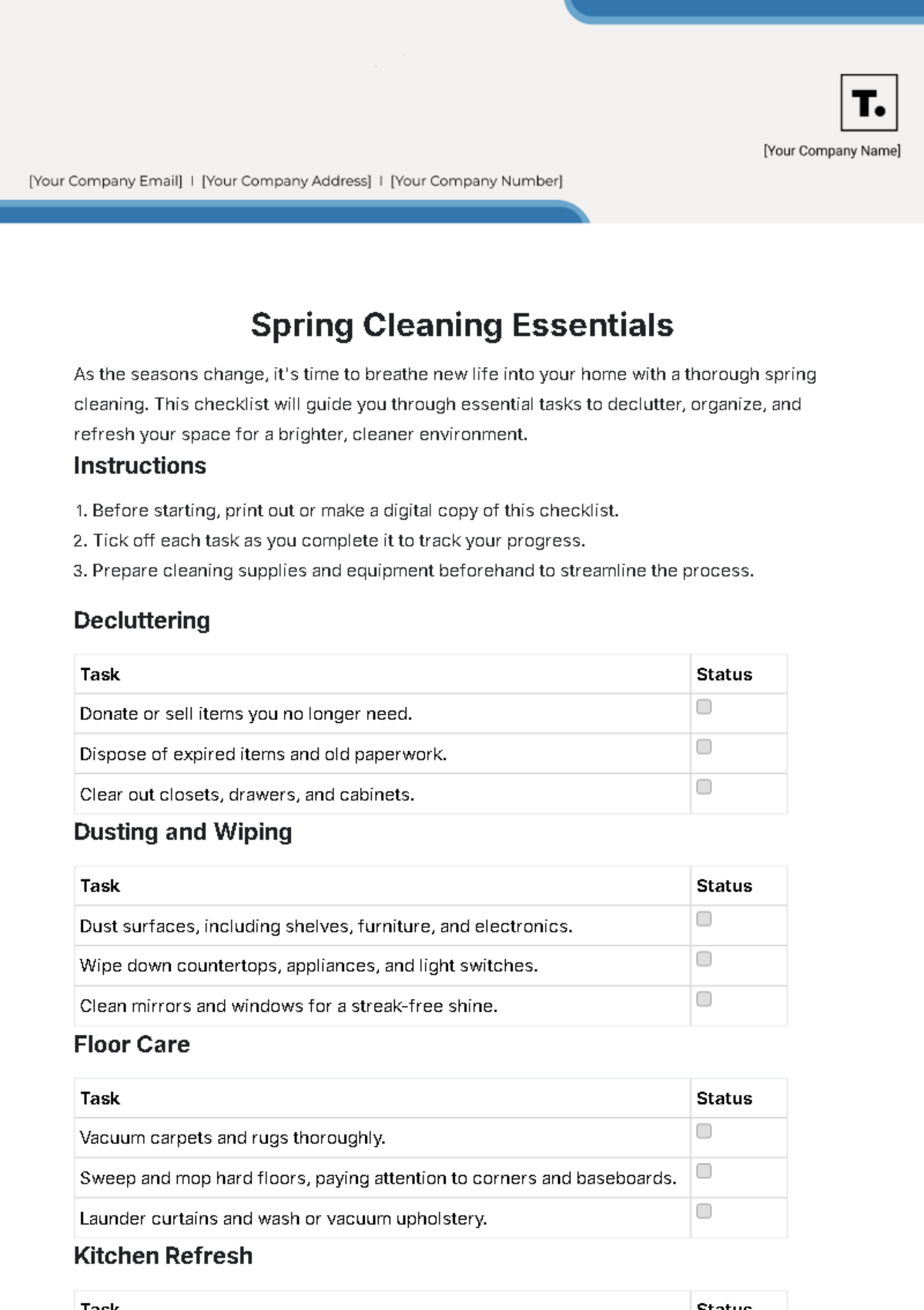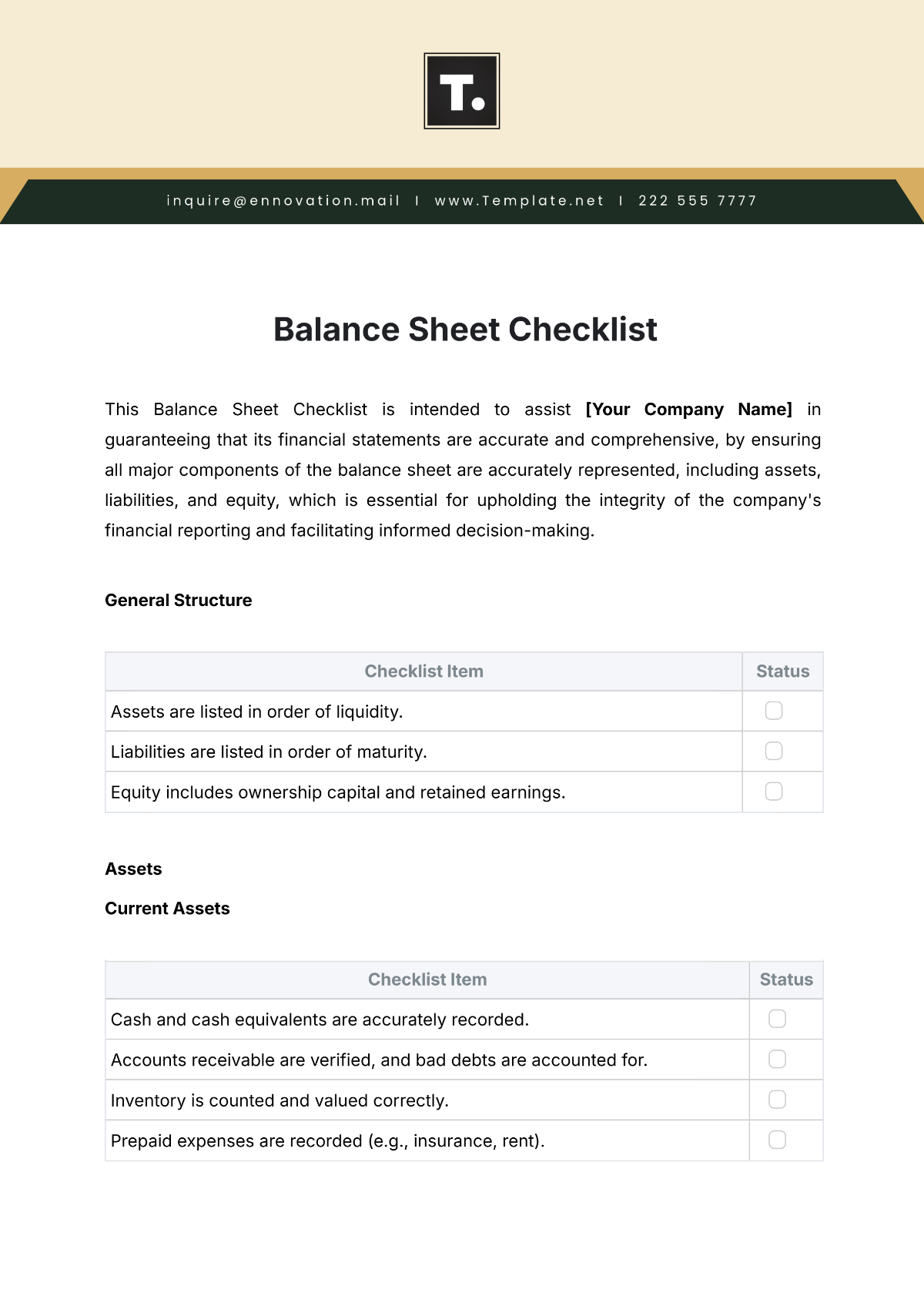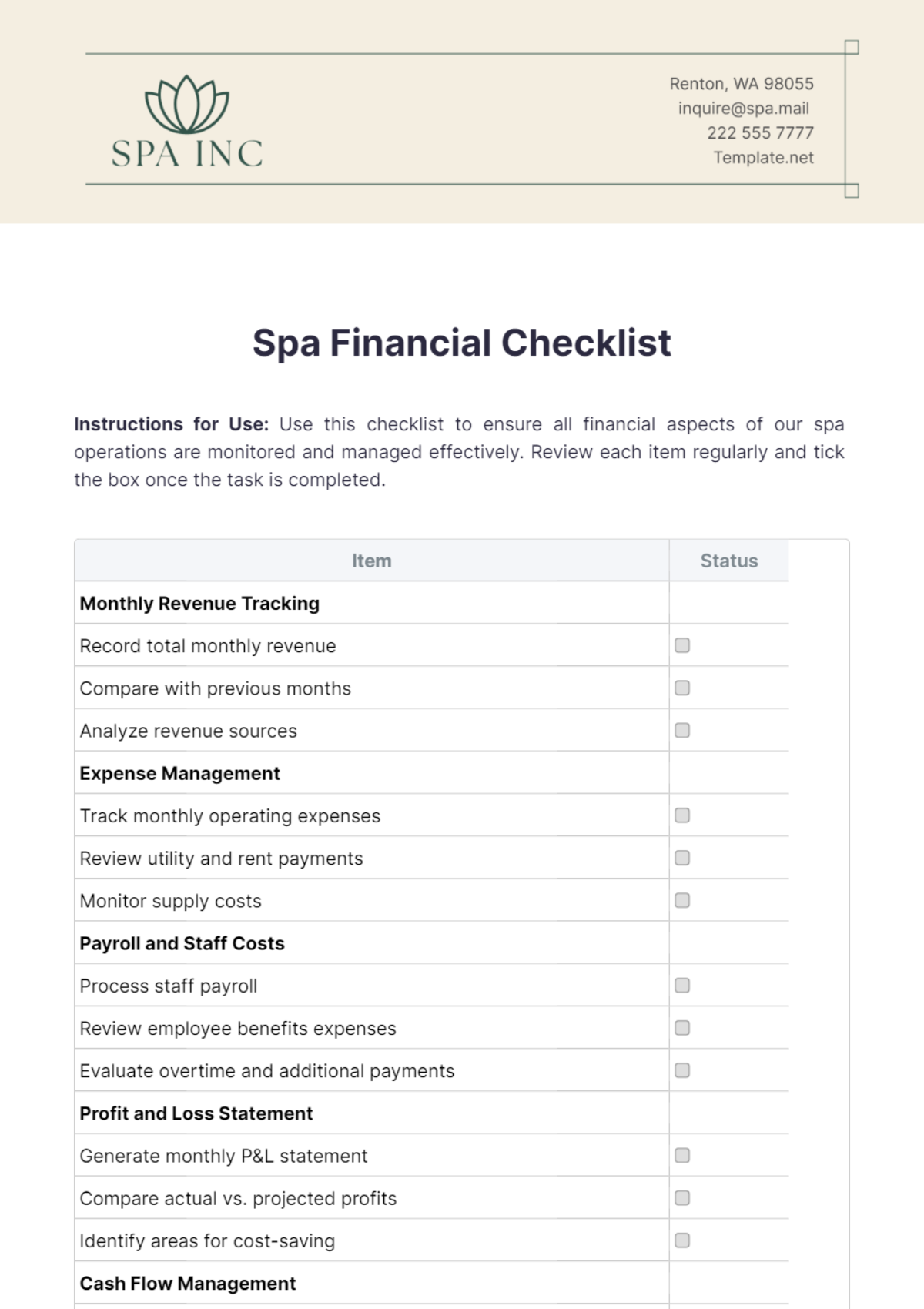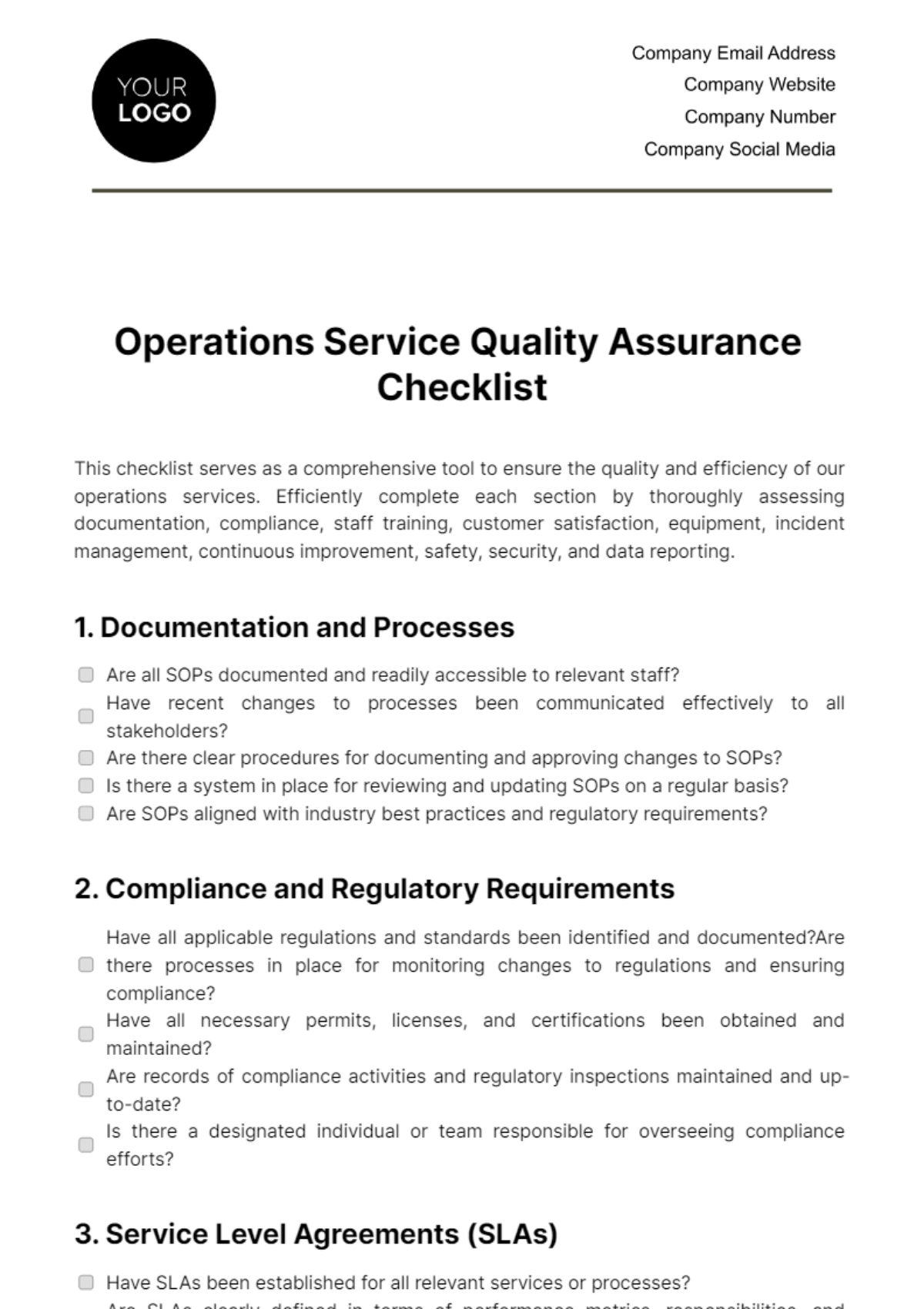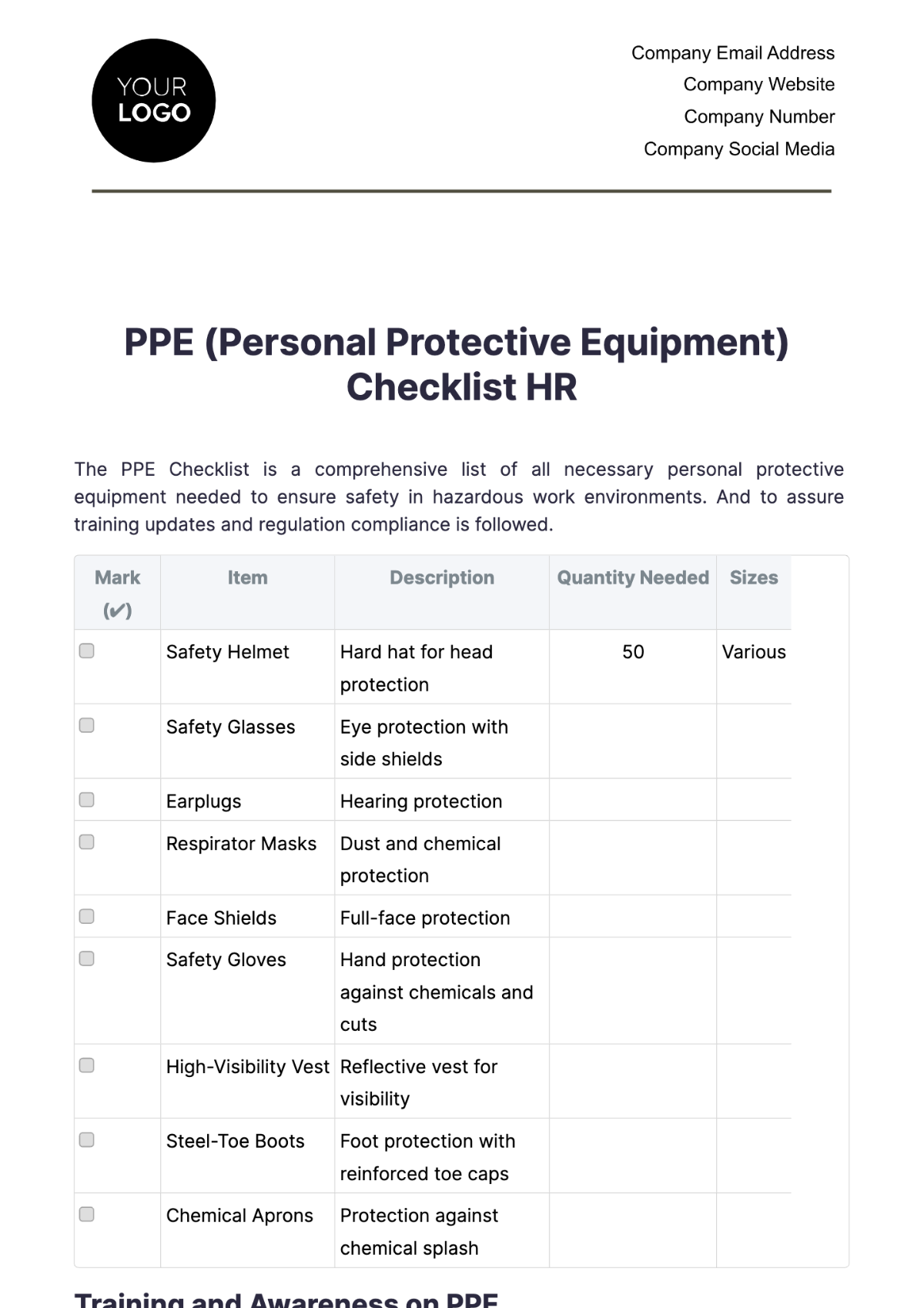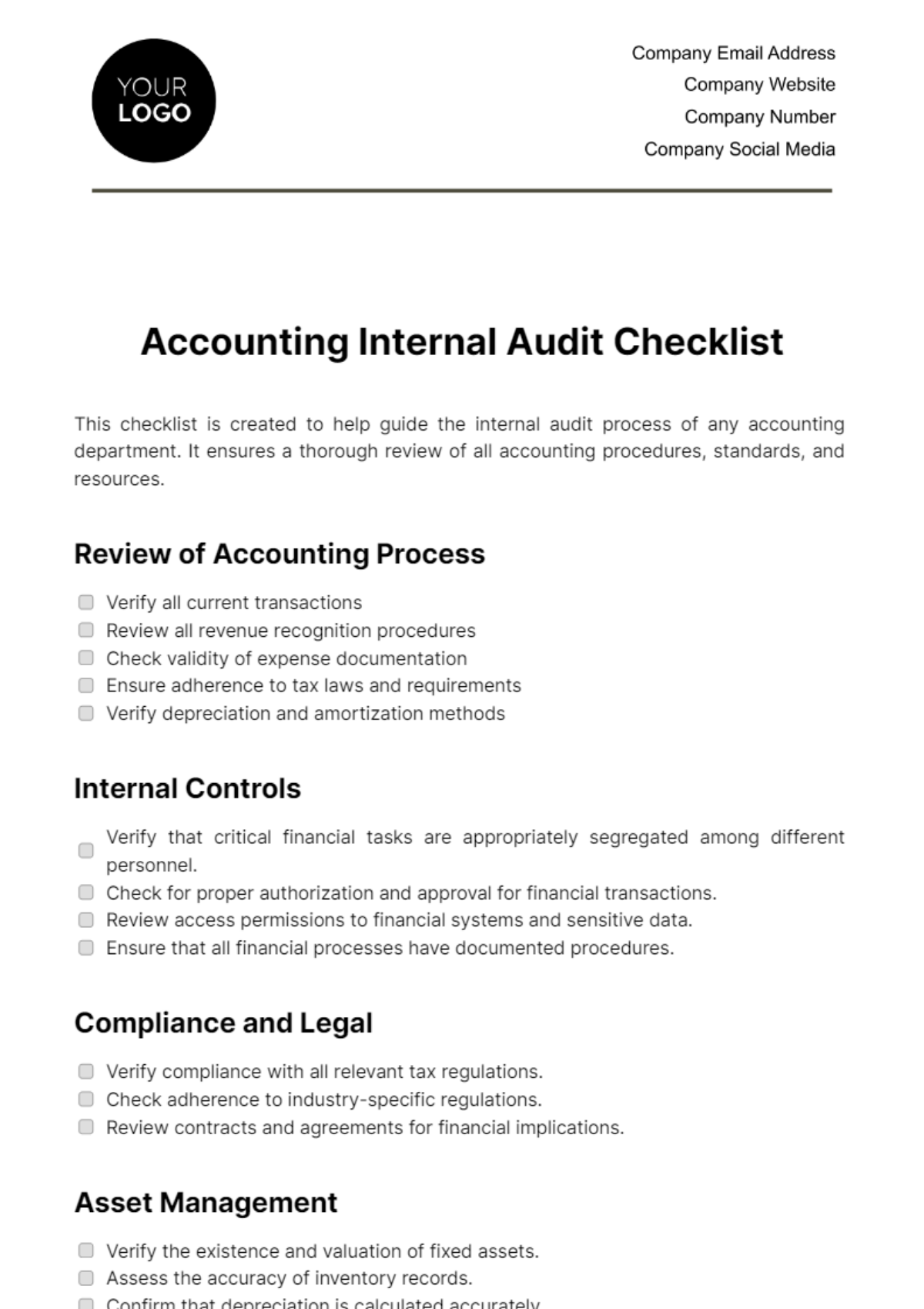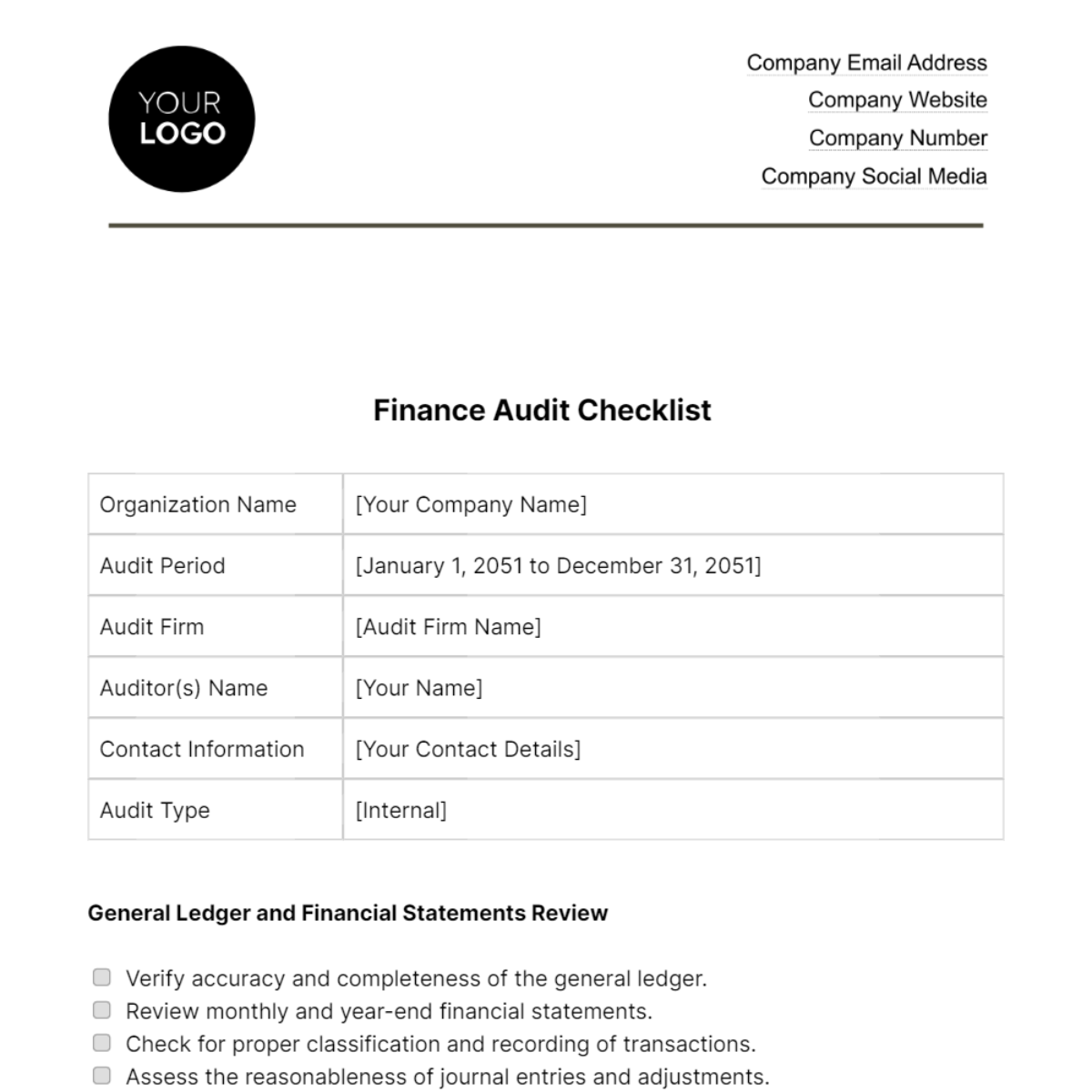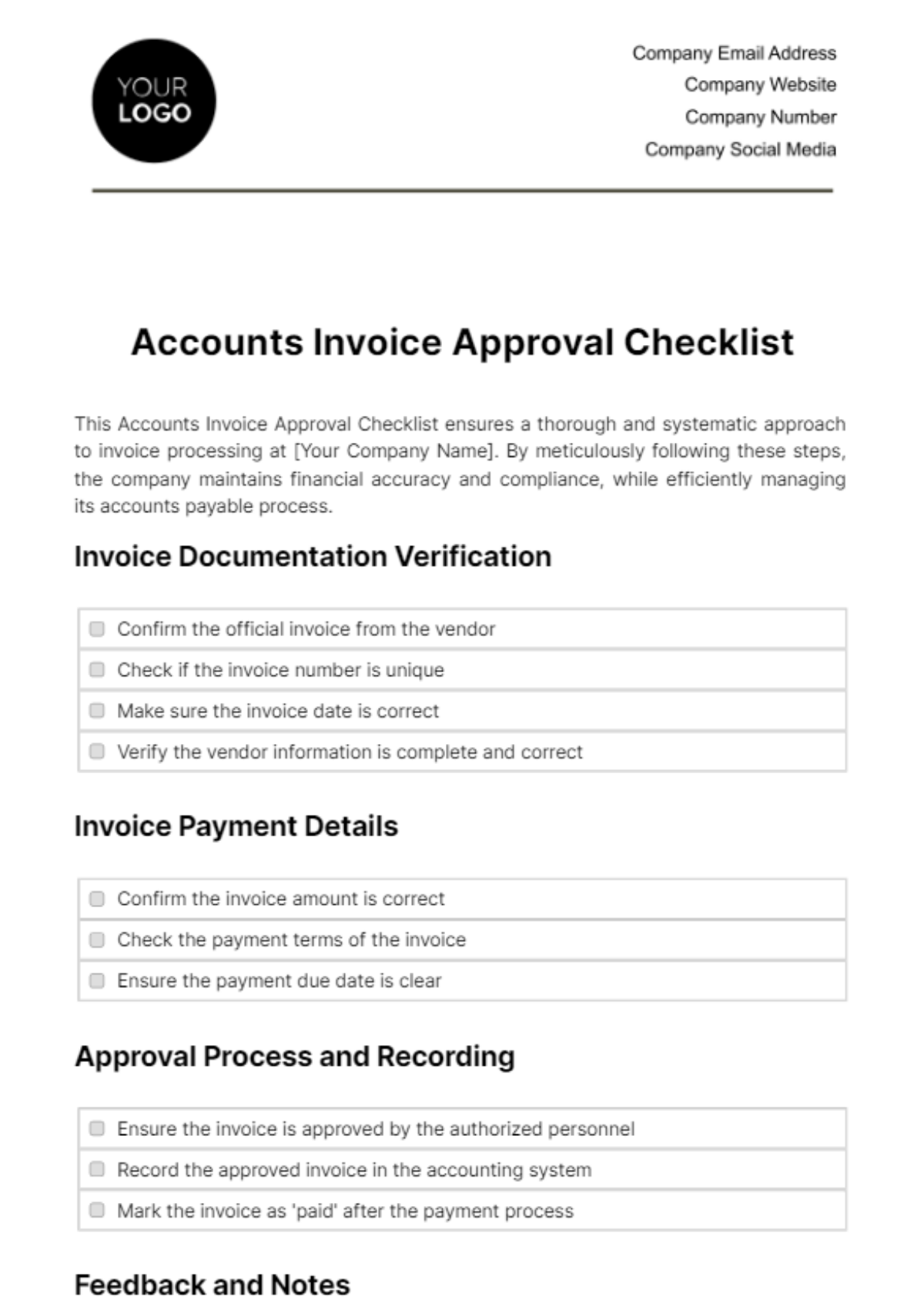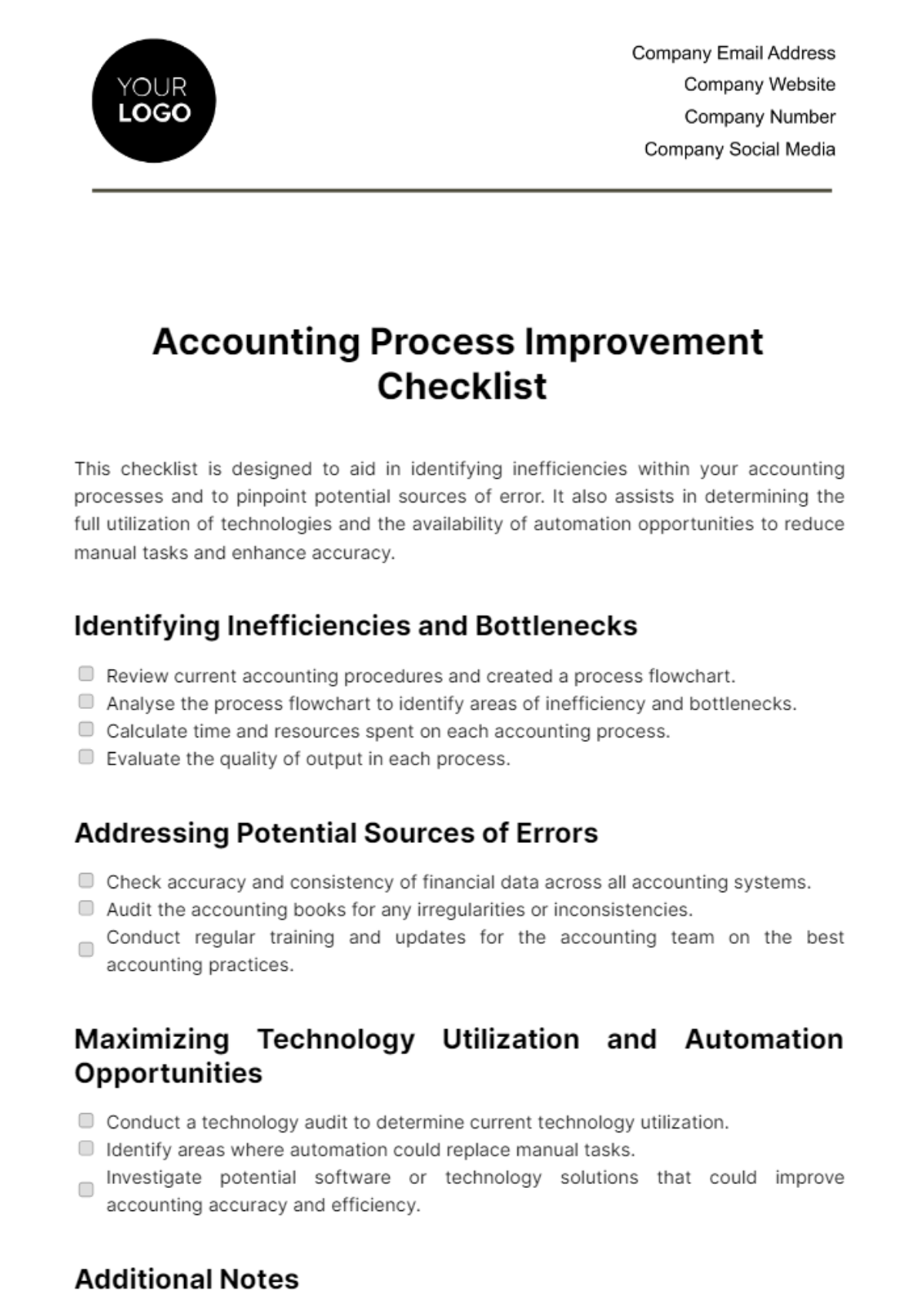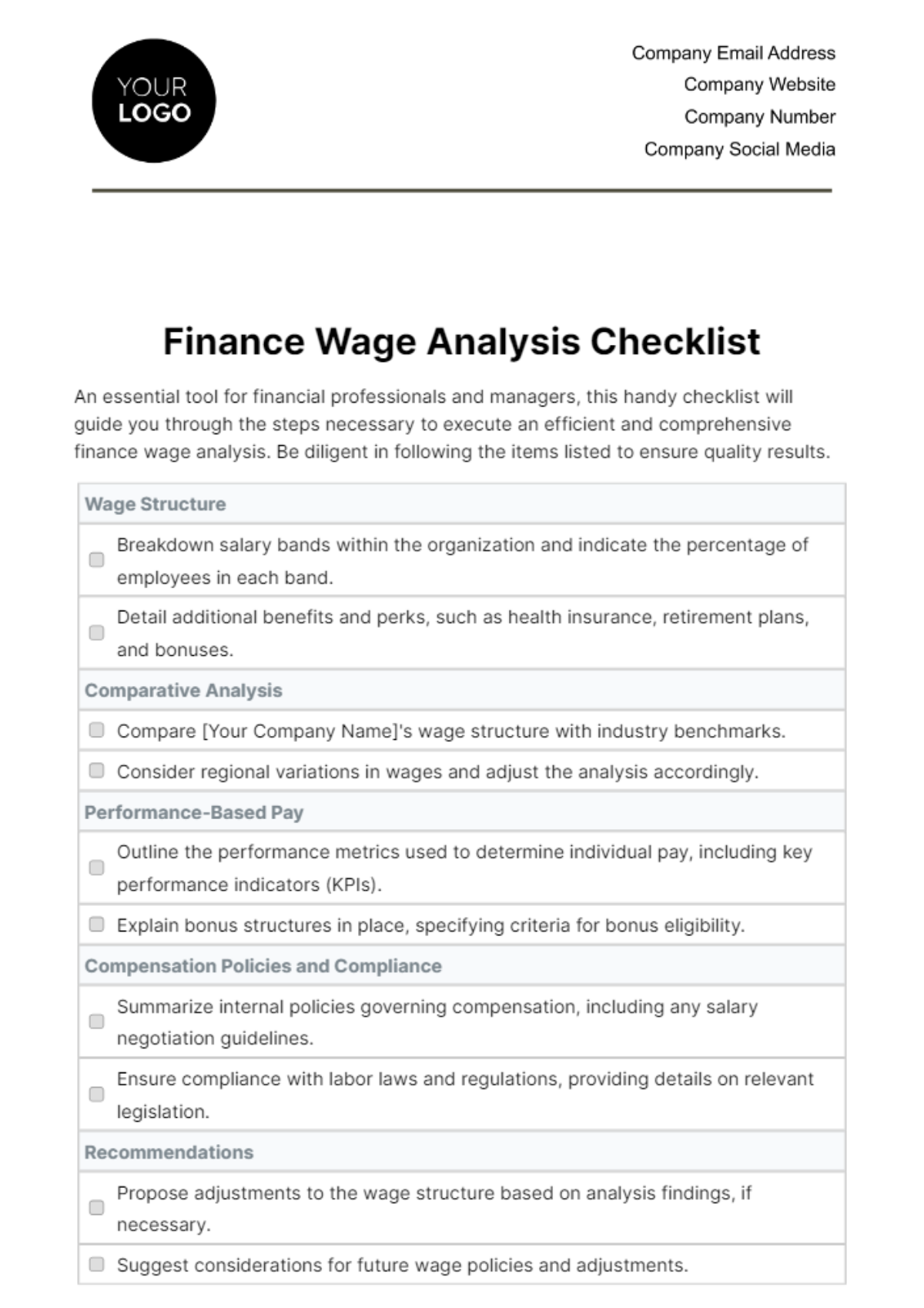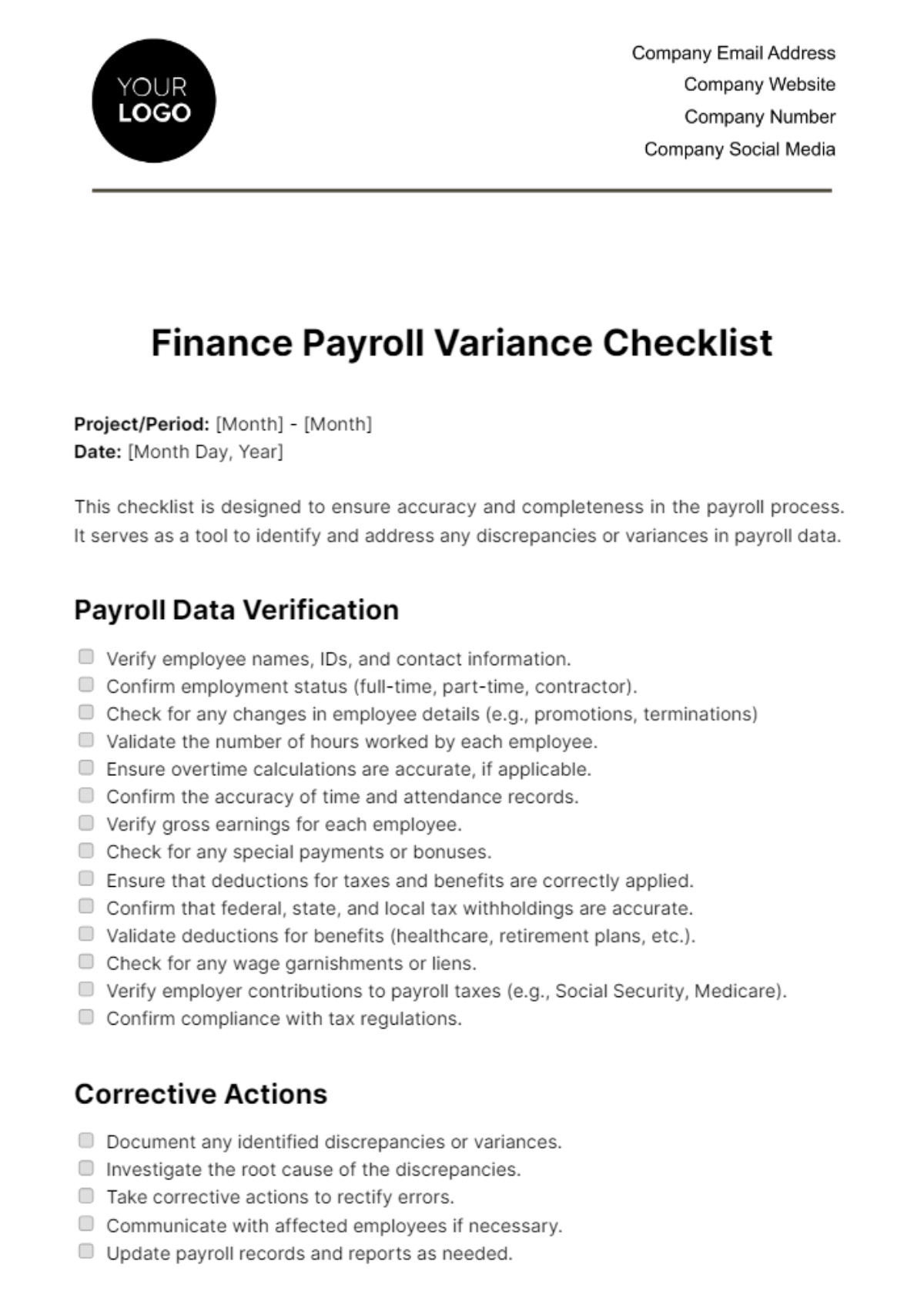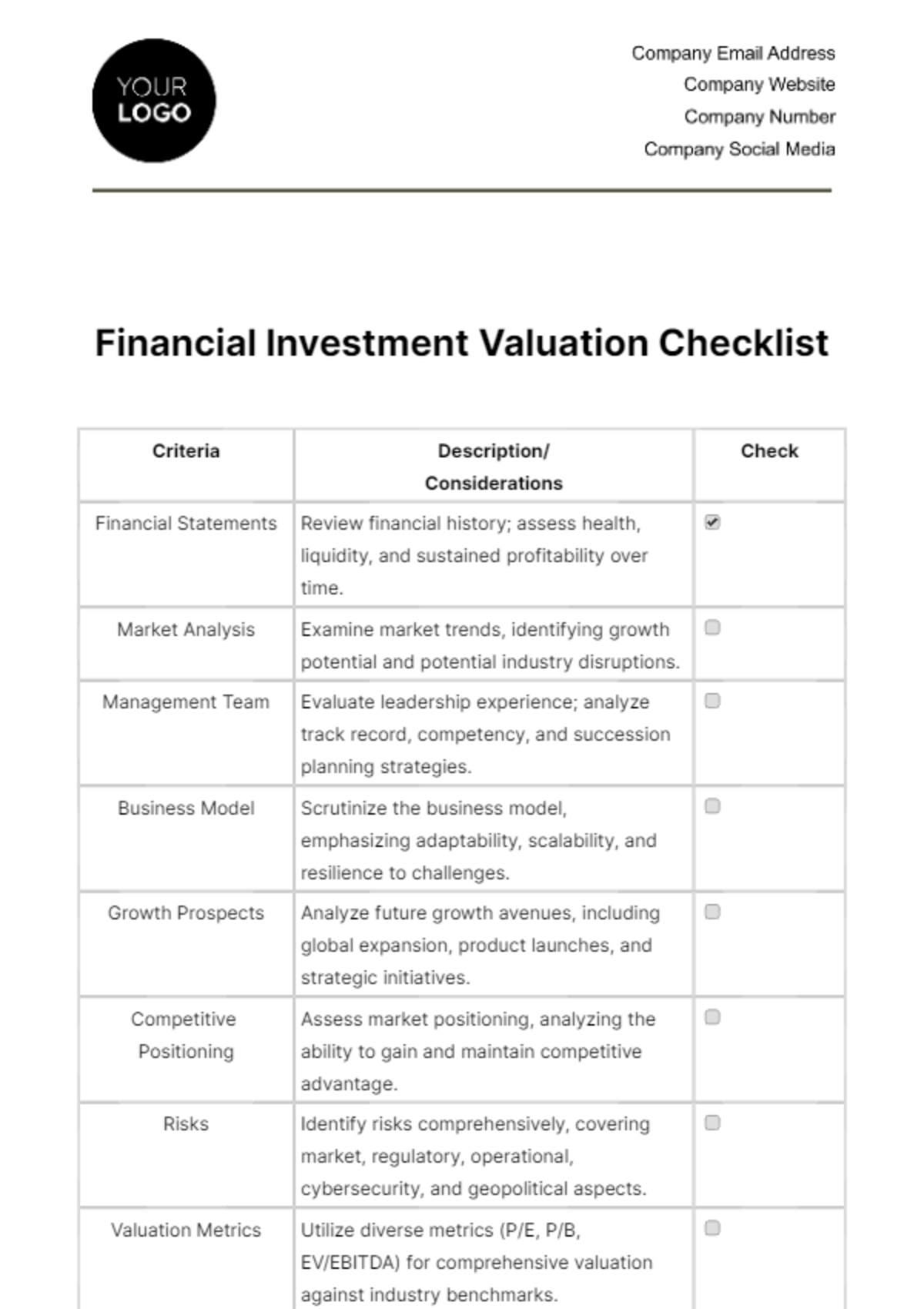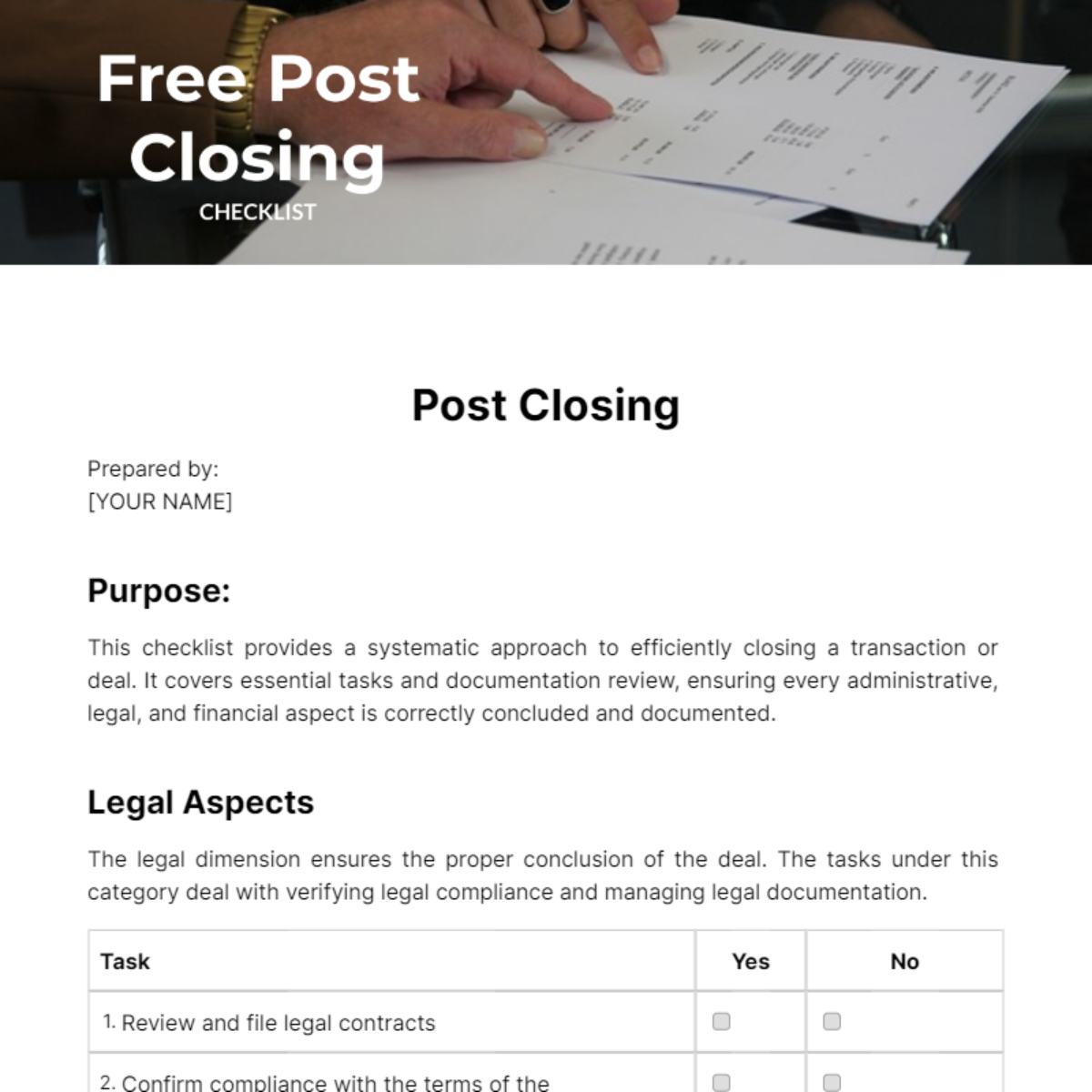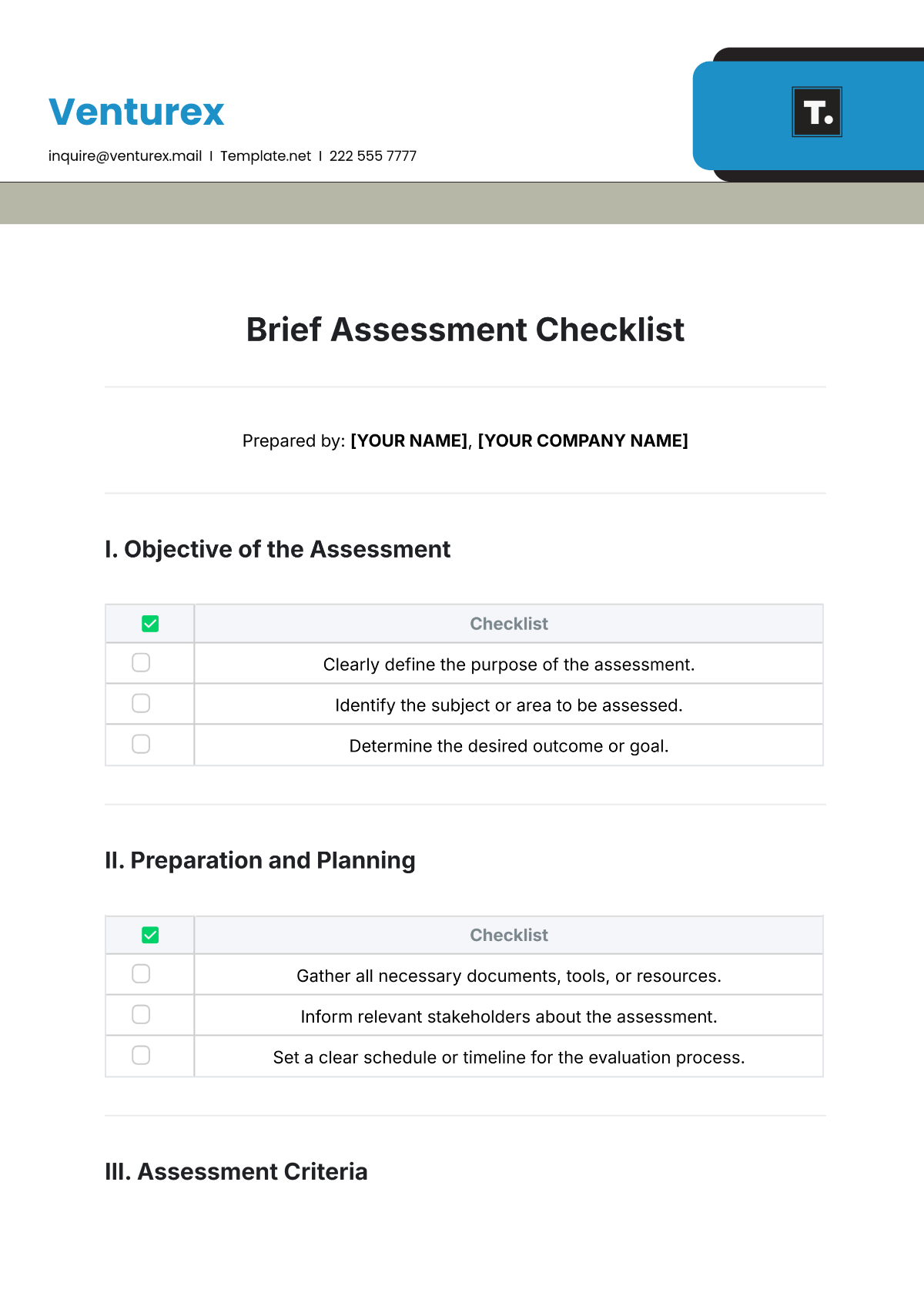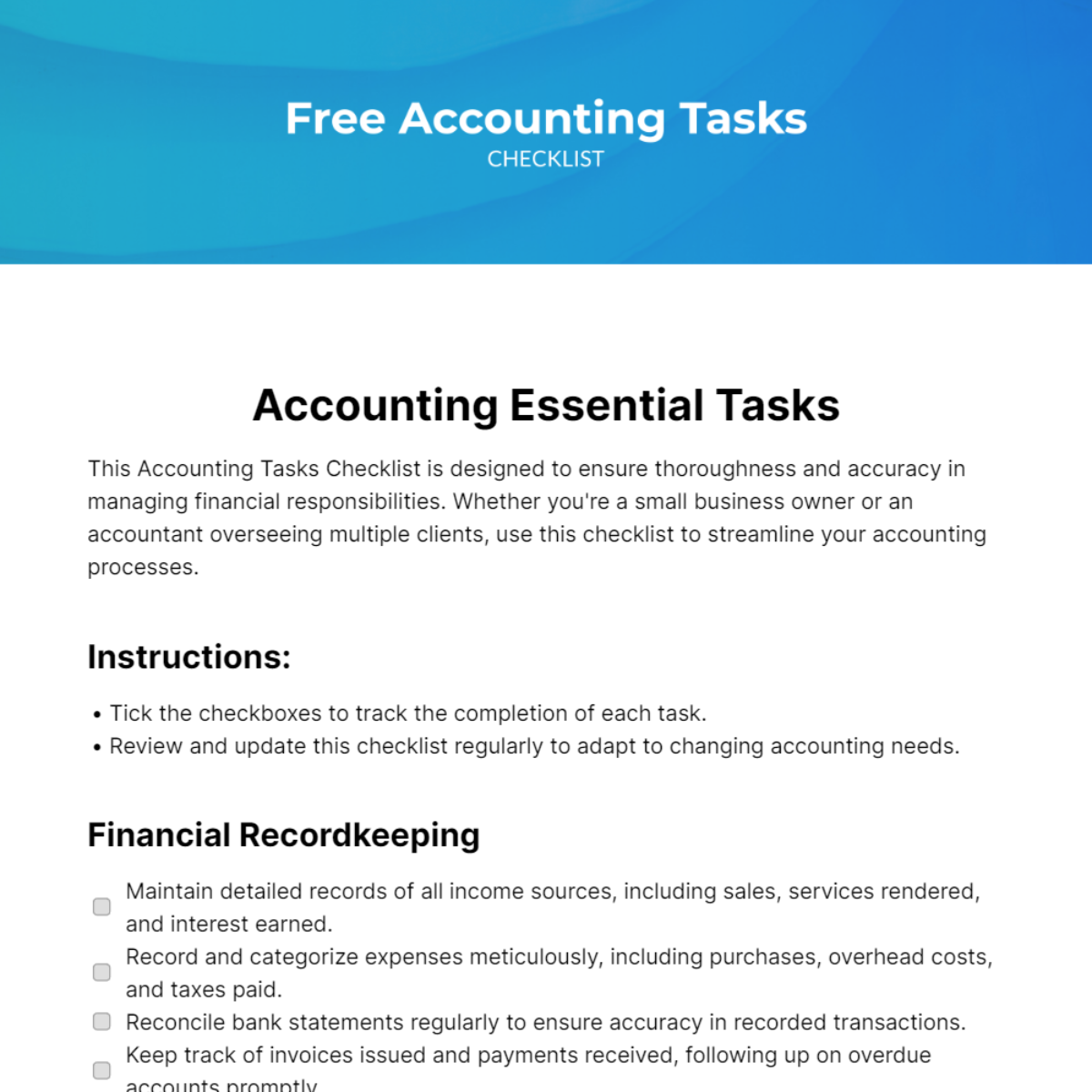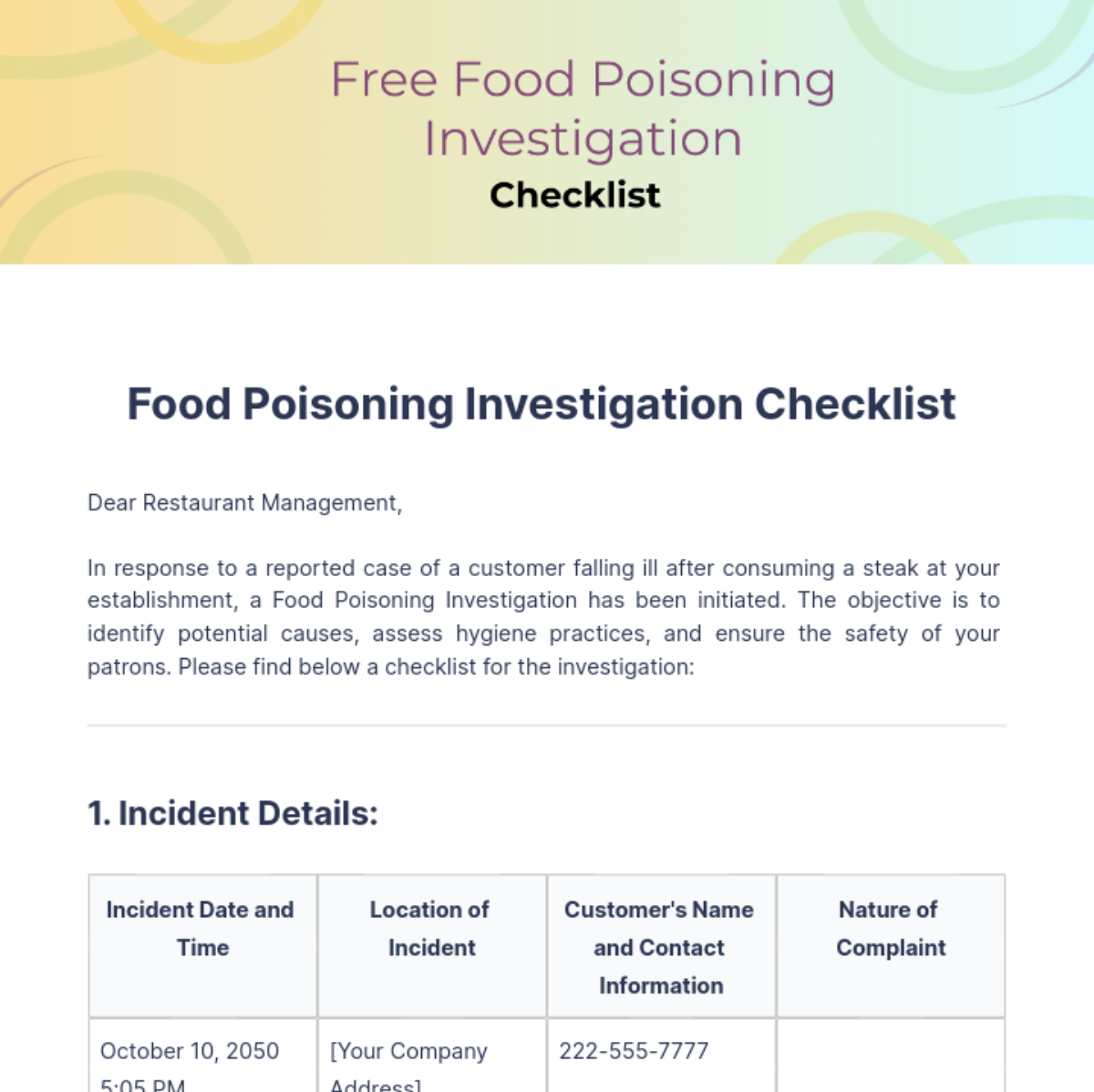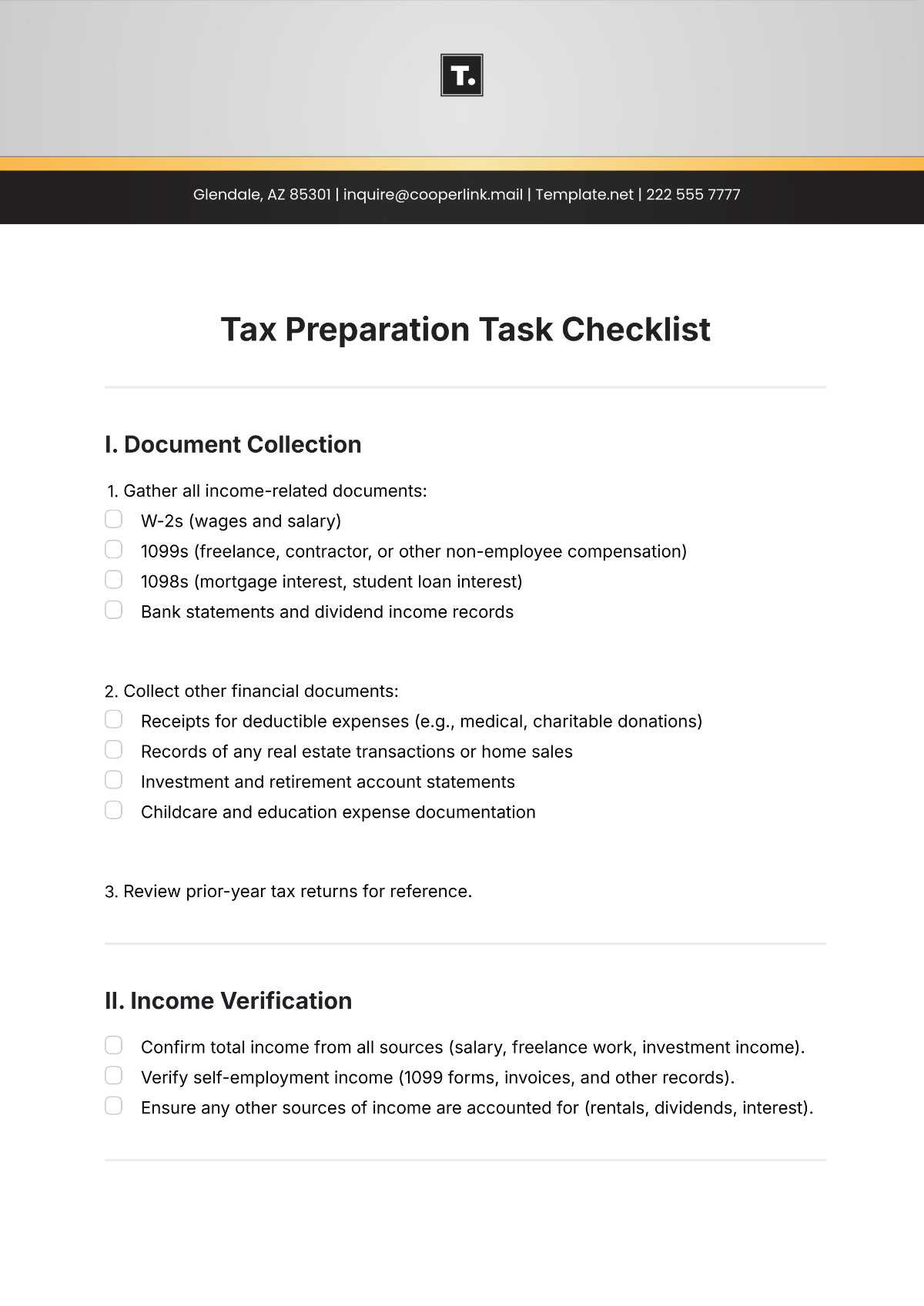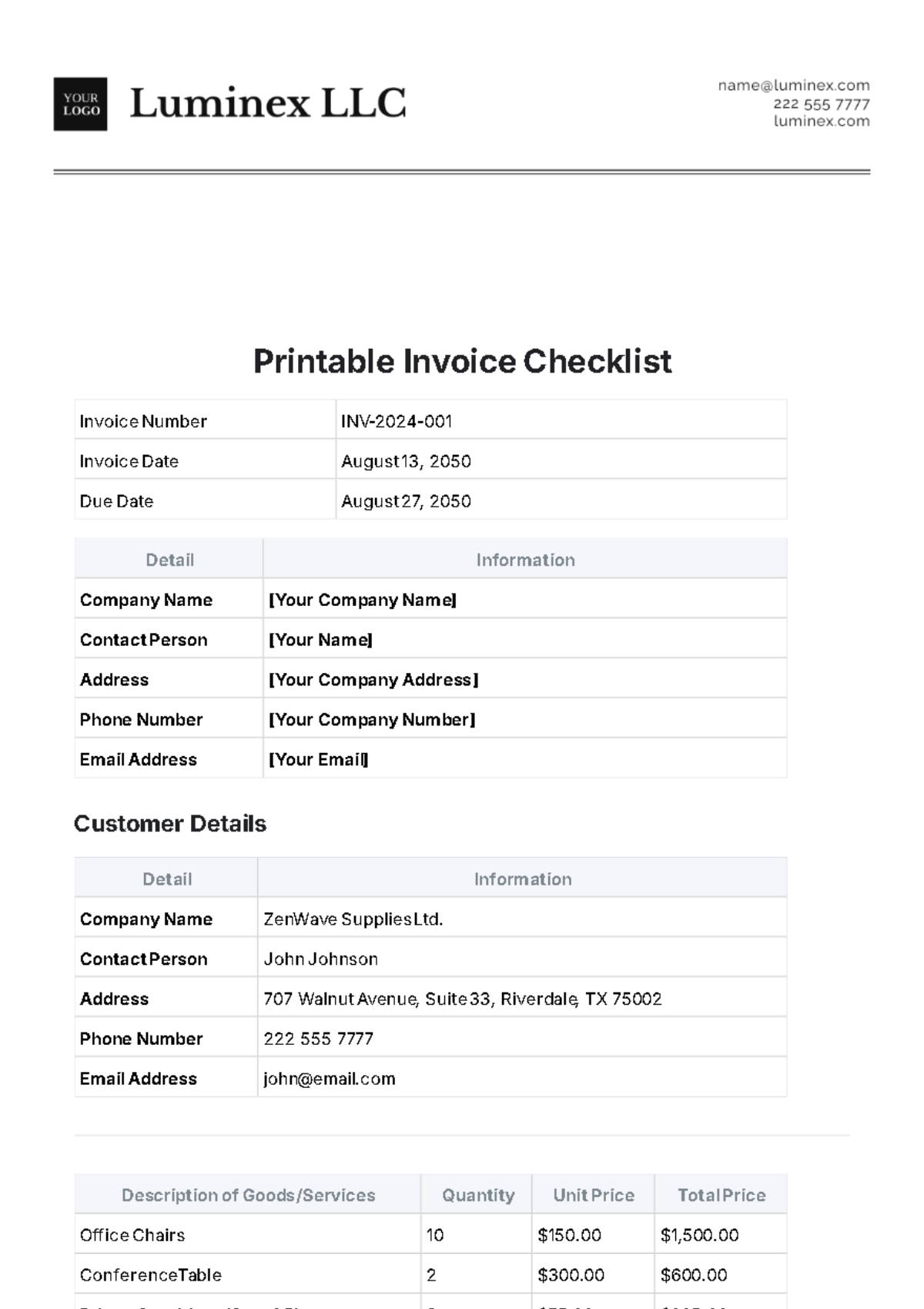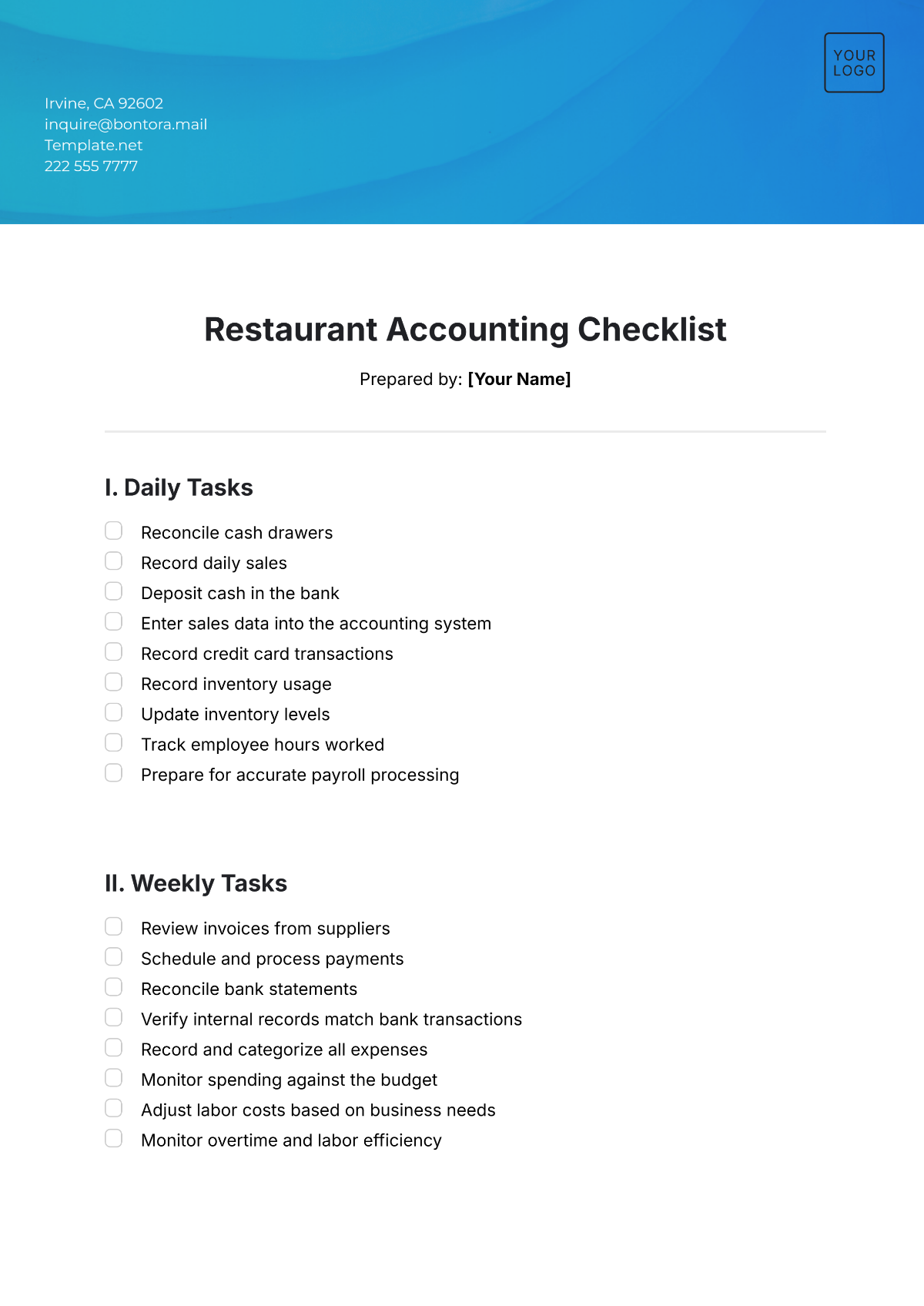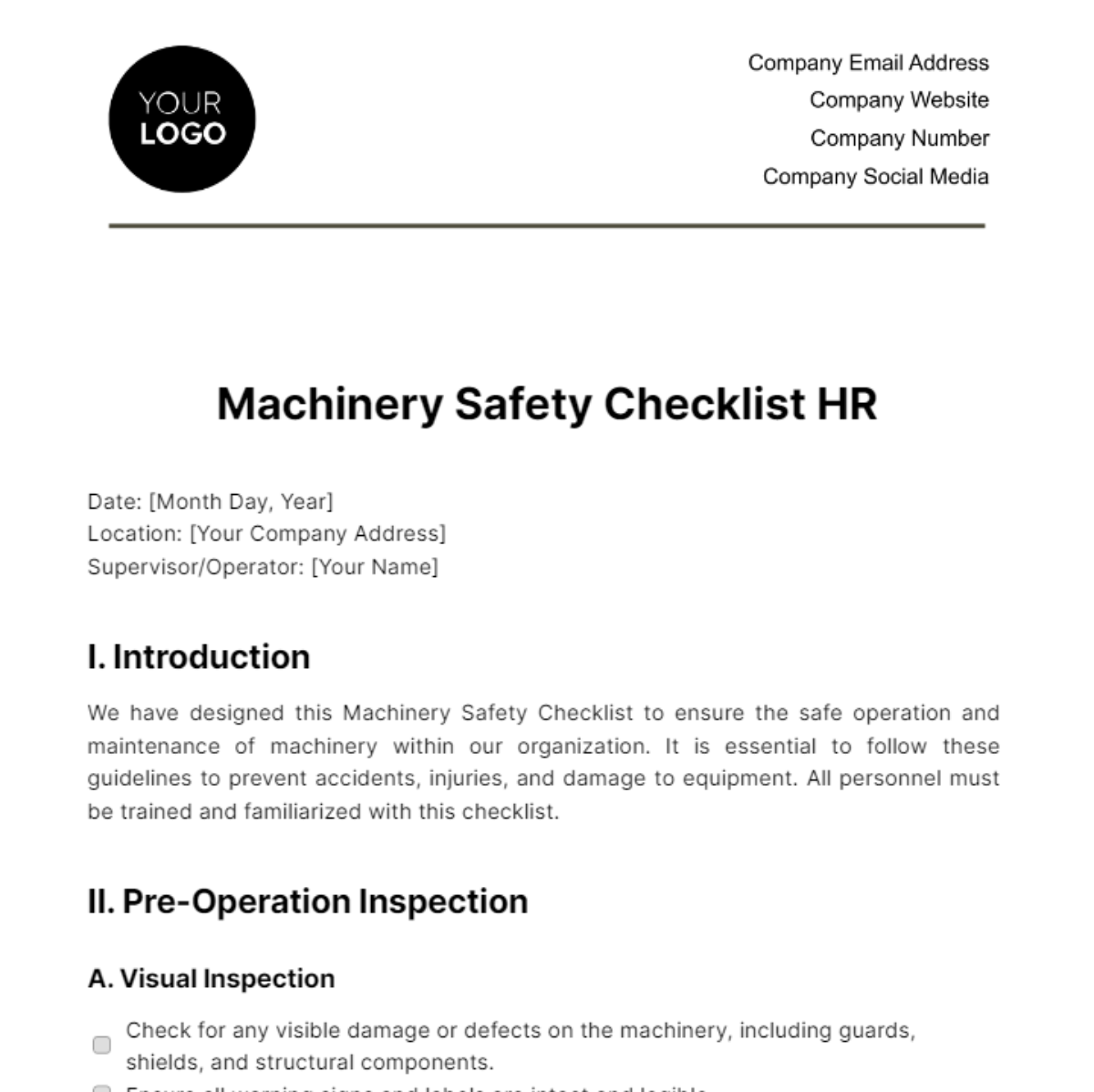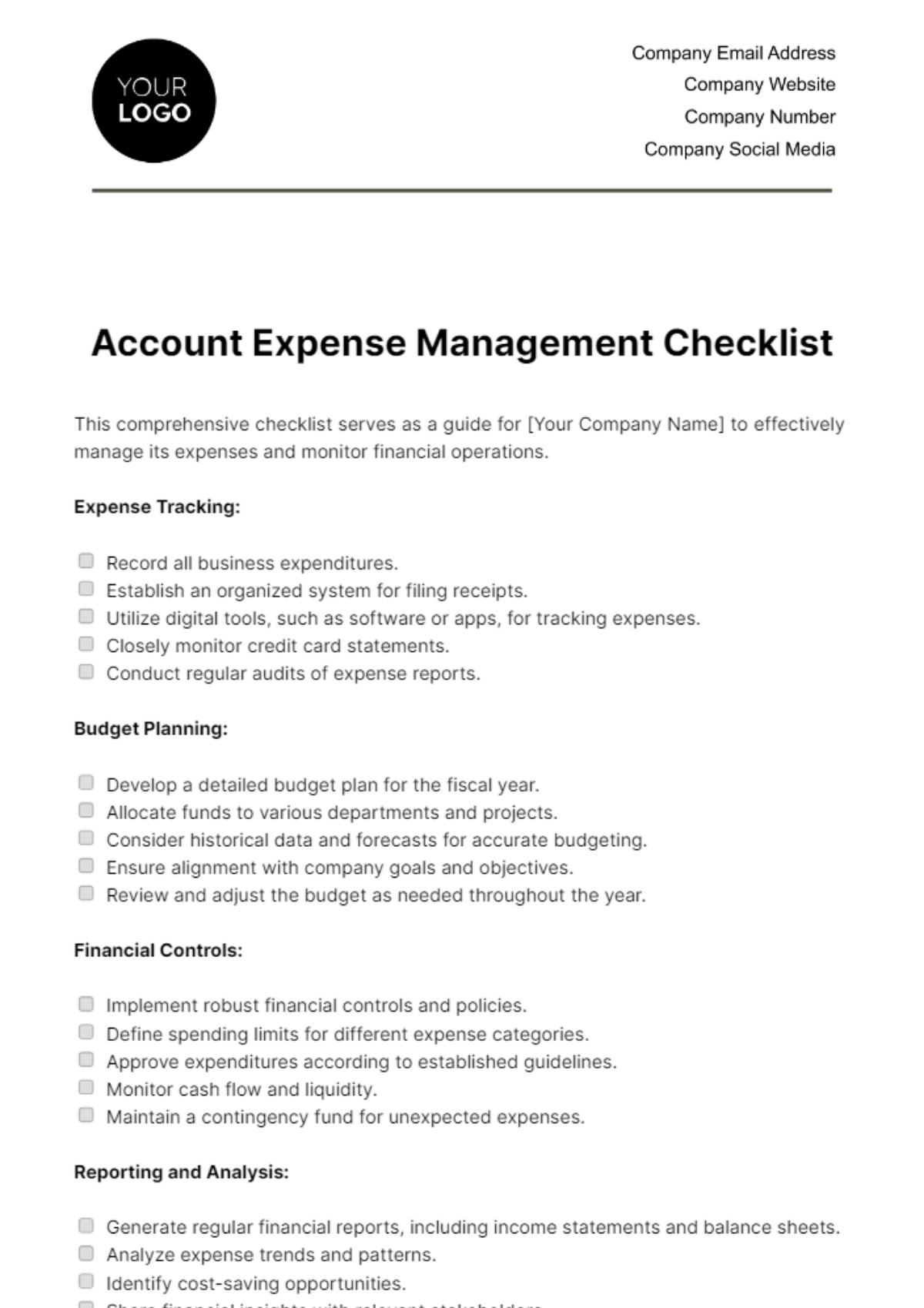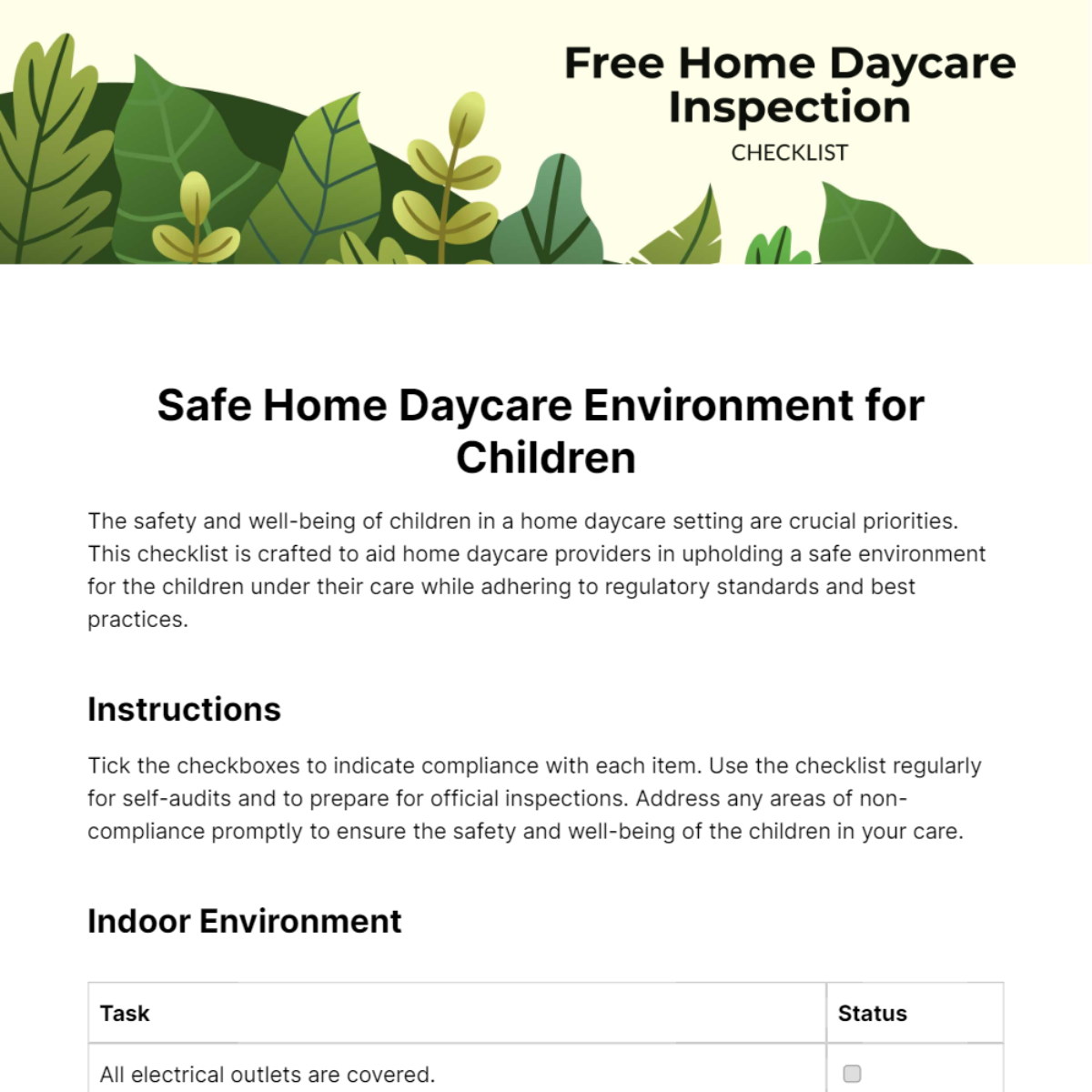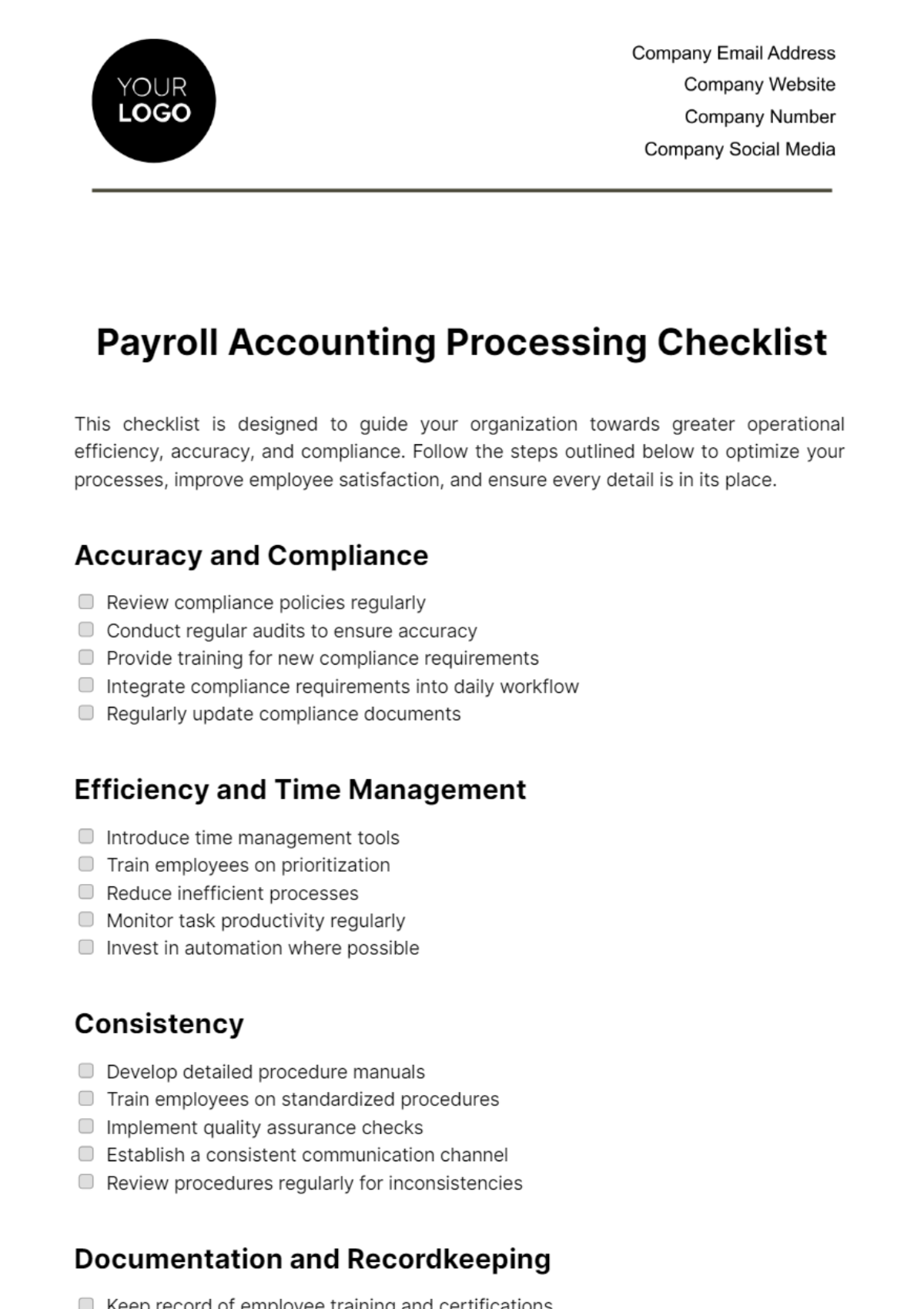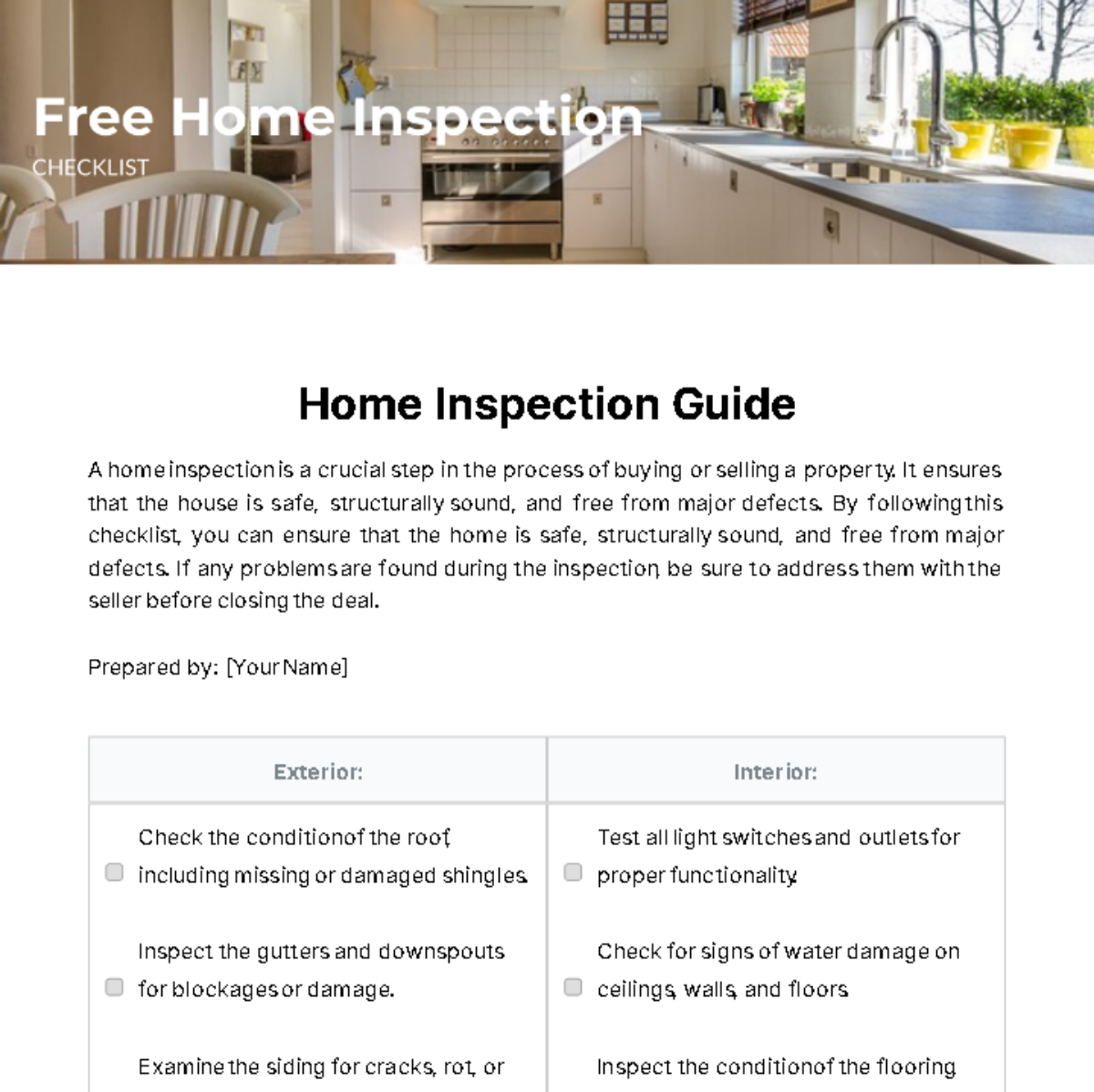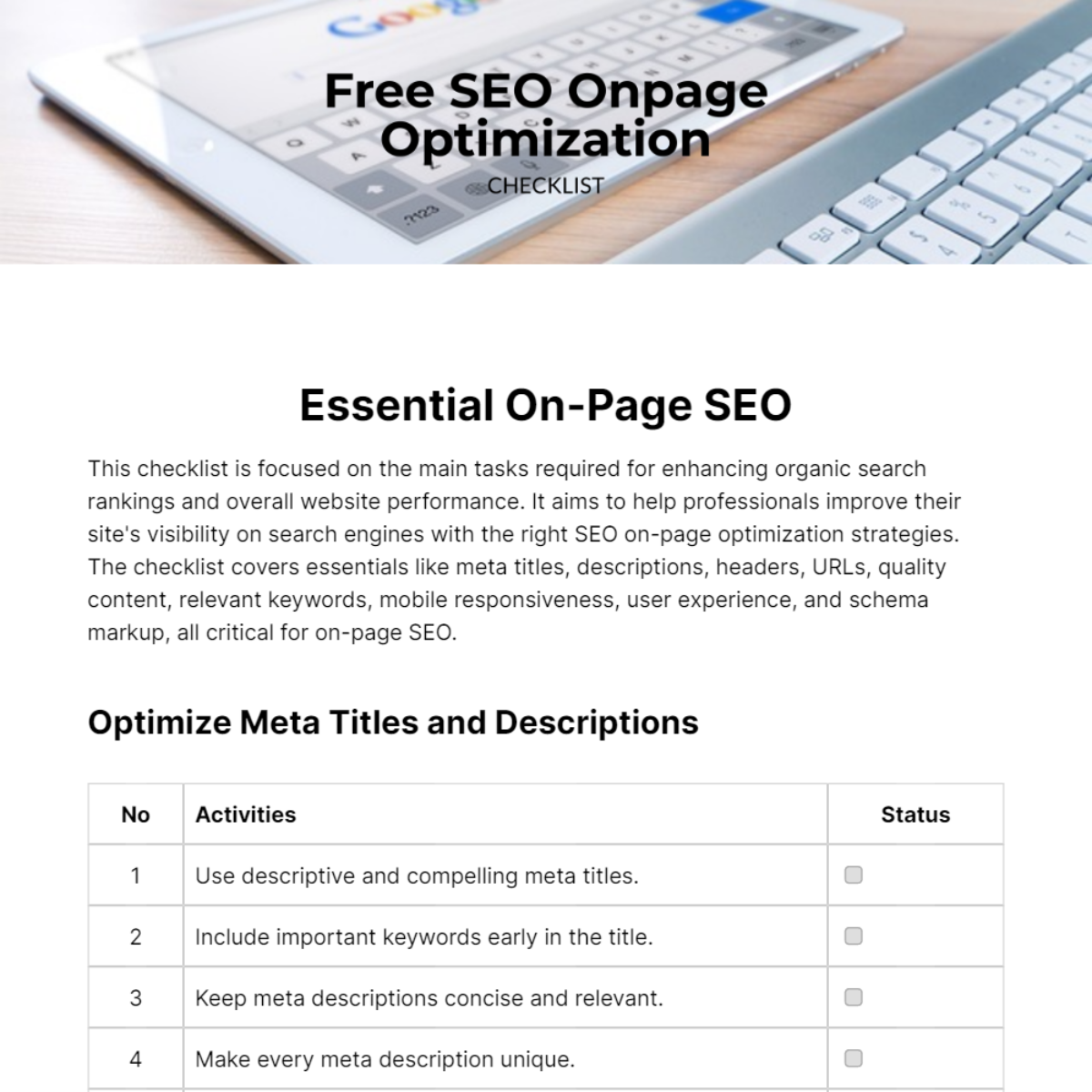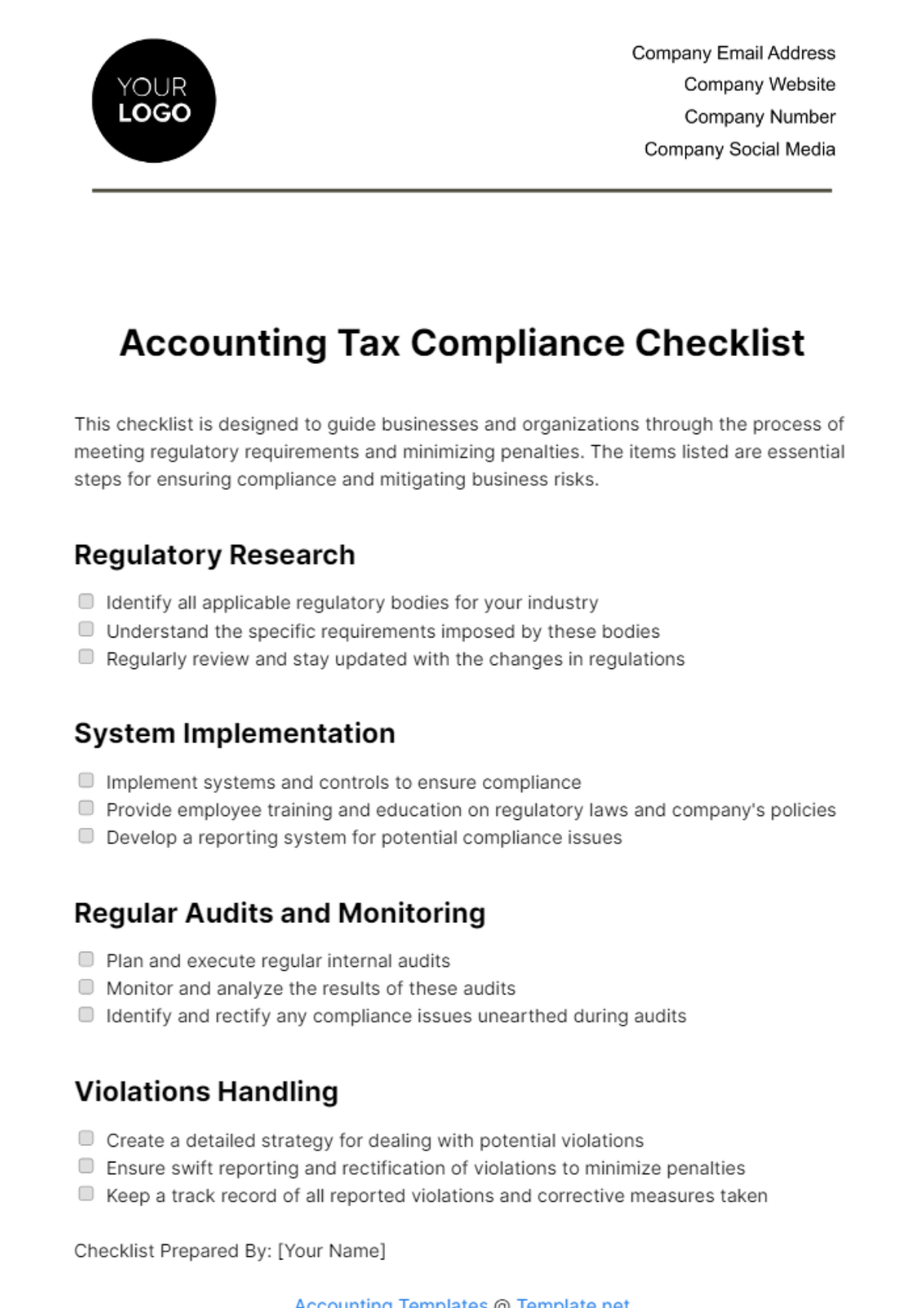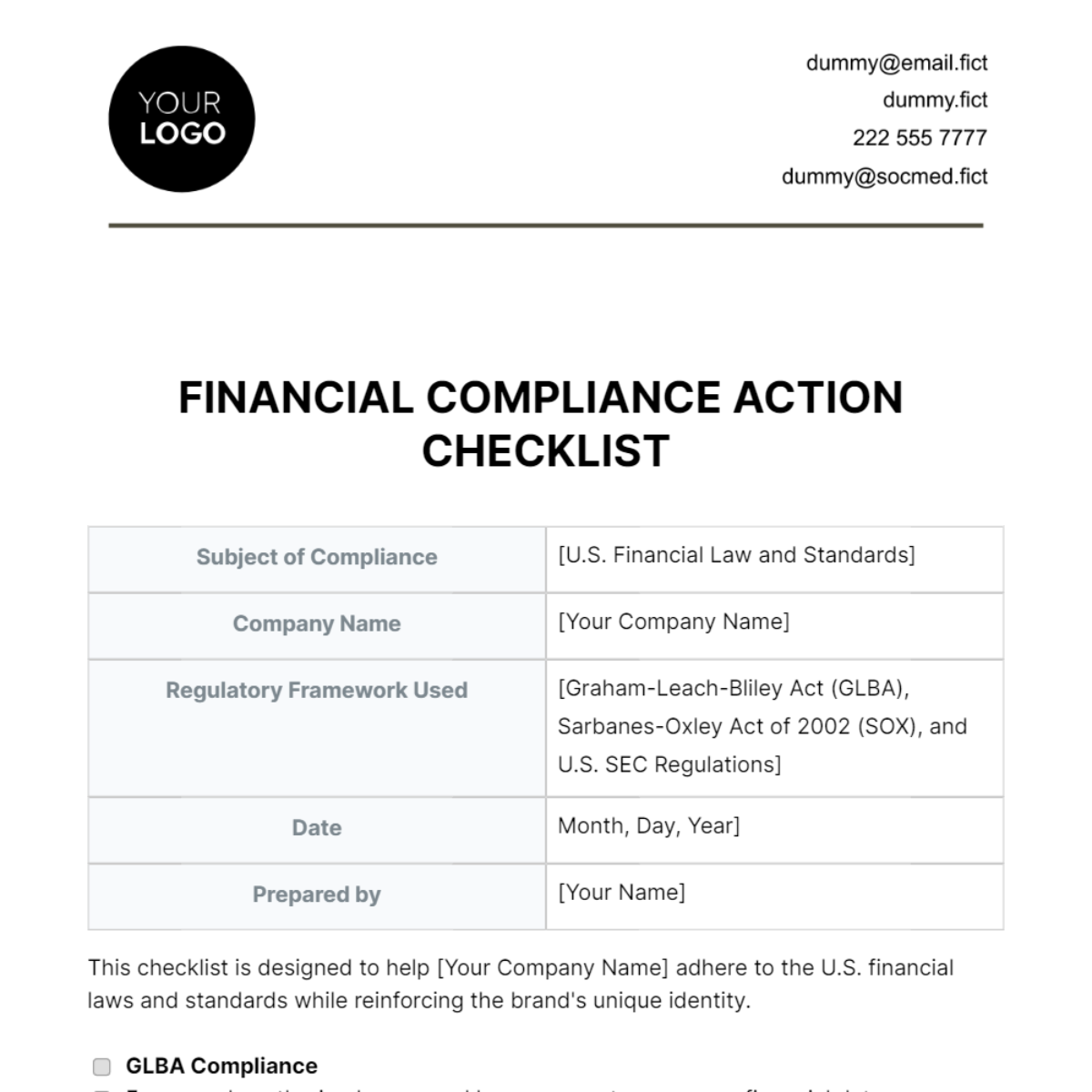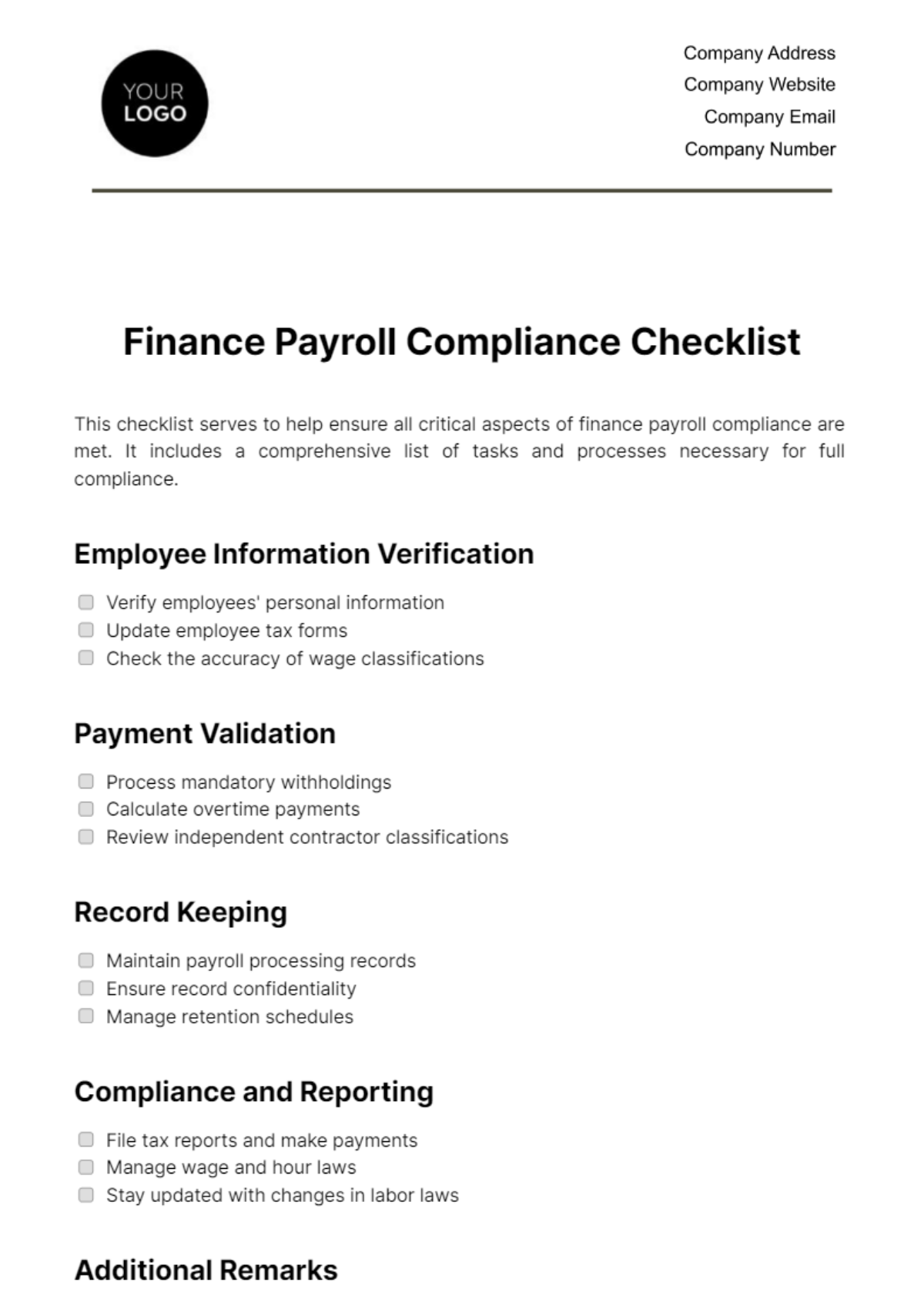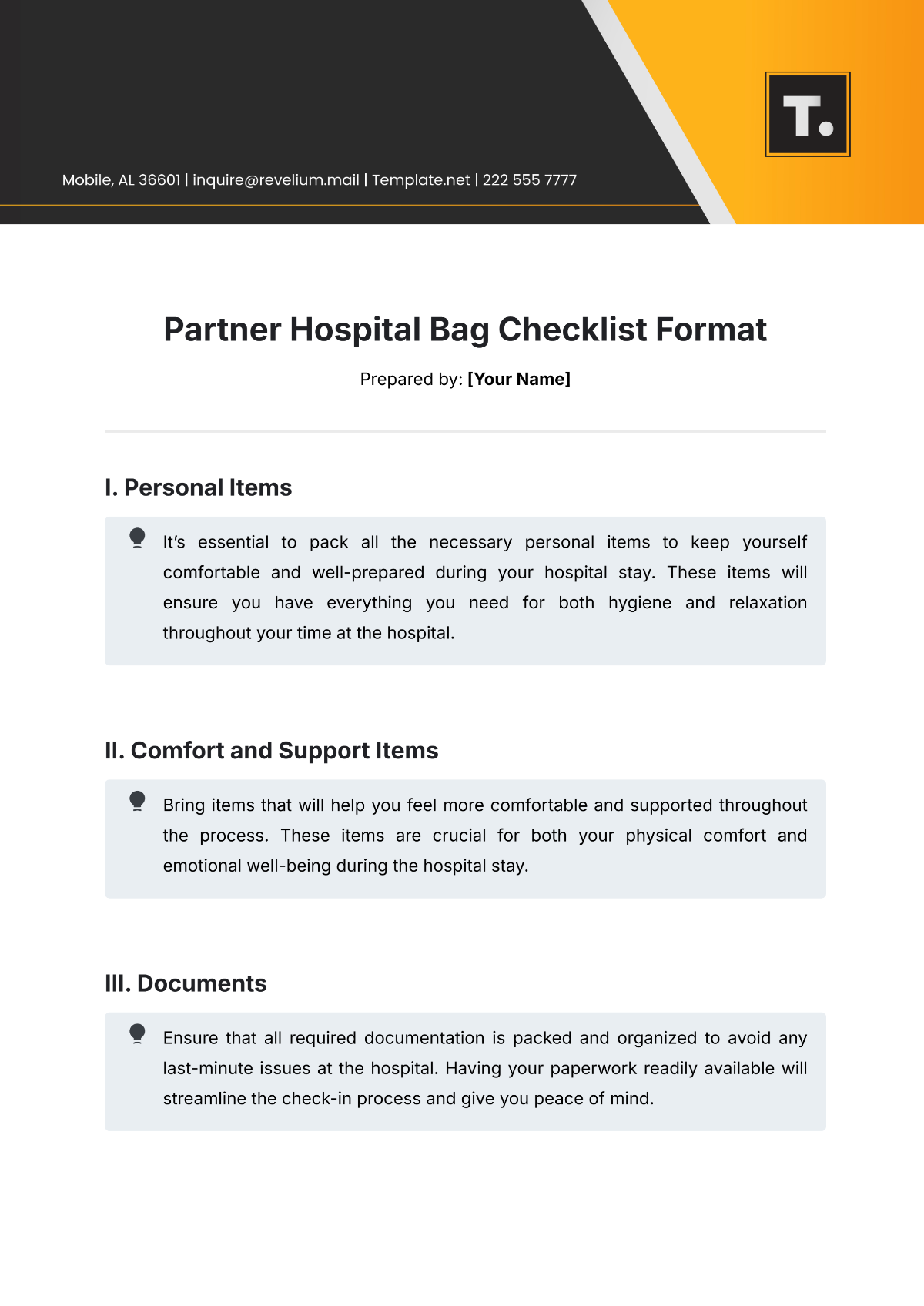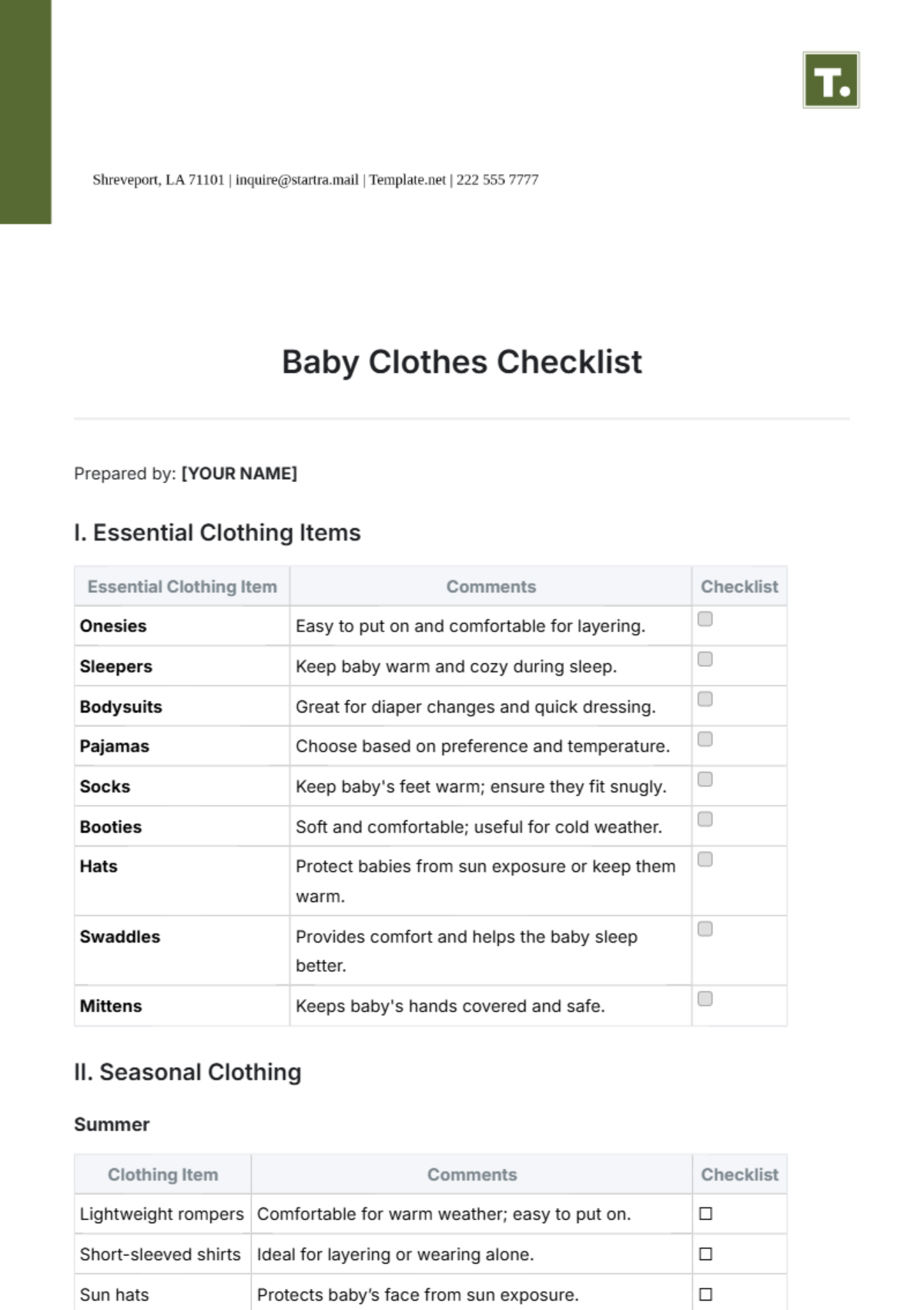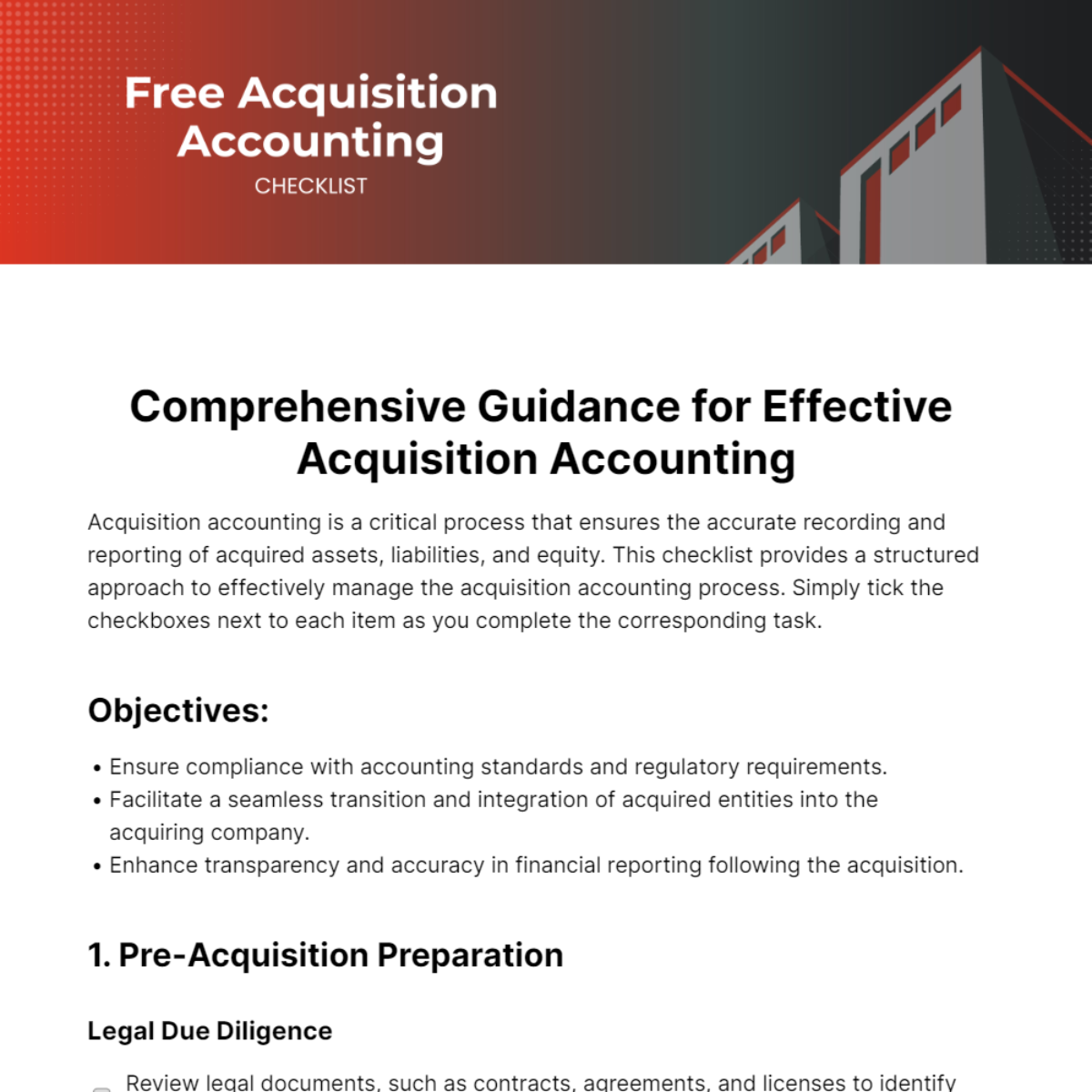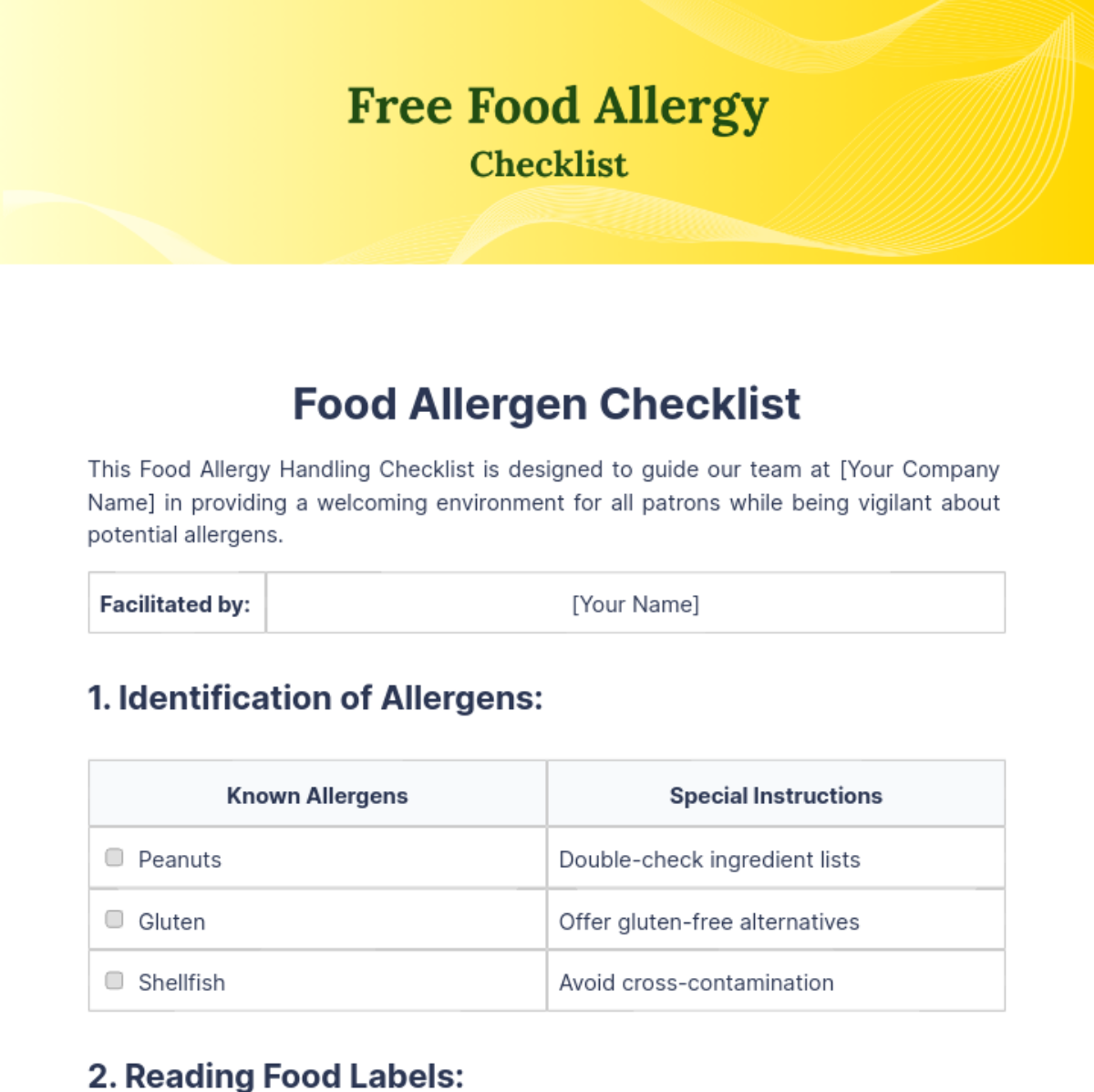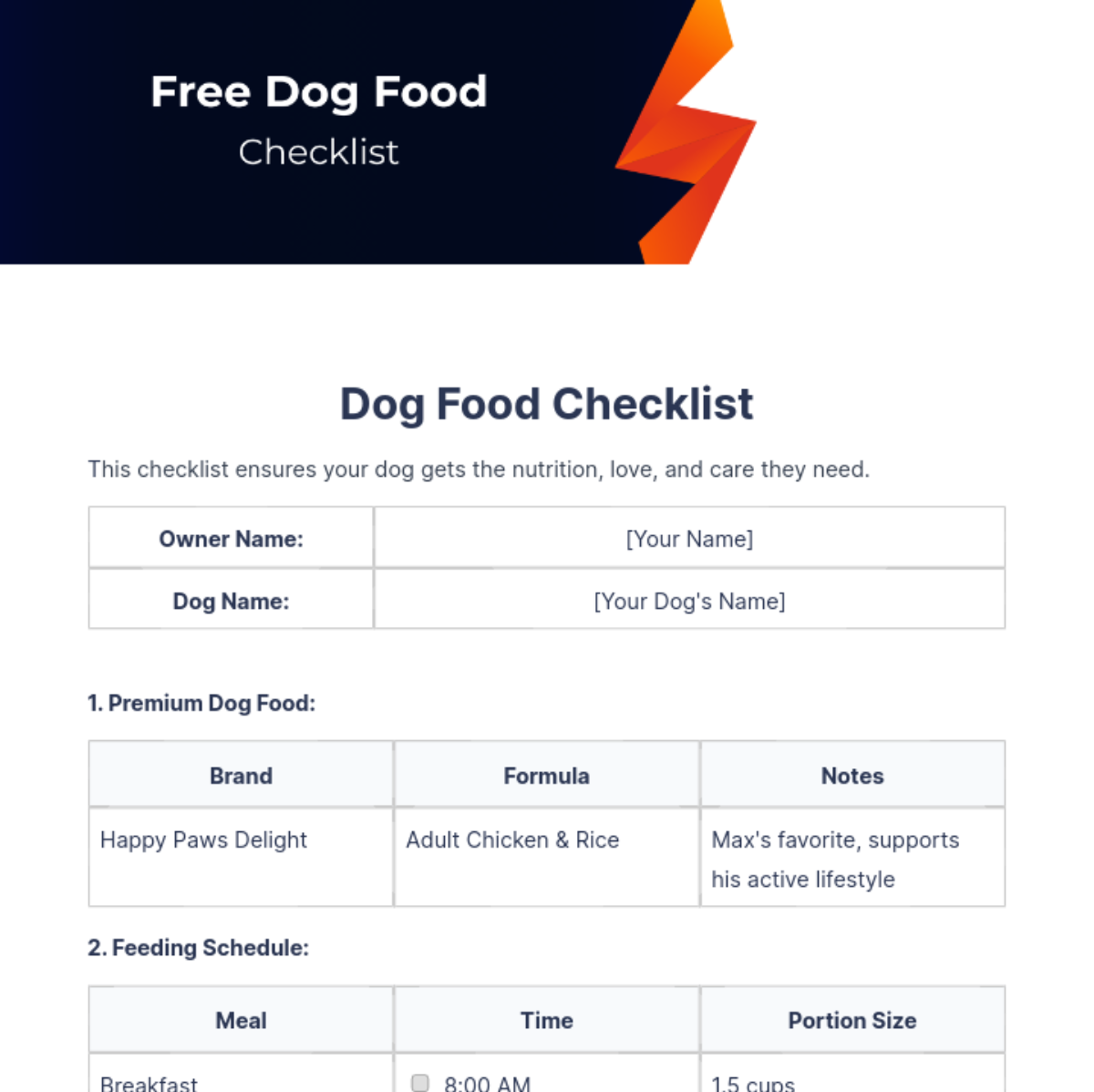Brief Assessment Checklist
Prepared by: [YOUR NAME], [YOUR COMPANY NAME]
I. Objective of the Assessment
✅ | Checklist |
|---|---|
Clearly define the purpose of the assessment. | |
Identify the subject or area to be assessed. | |
Determine the desired outcome or goal. |
II. Preparation and Planning
✅ | Checklist |
|---|---|
Gather all necessary documents, tools, or resources. | |
Inform relevant stakeholders about the assessment. | |
Set a clear schedule or timeline for the evaluation process. |
III. Assessment Criteria
✅ | Checklist |
|---|---|
List measurable criteria or key performance indicators. | |
Ensure criteria align with the assessment objectives. | |
Verify that the criteria are relevant and achievable. |
IV. Execution of the Assessment
✅ | Checklist |
|---|---|
Conduct the assessment systematically using set criteria. | |
Record observations and results accurately. | |
Address any challenges or discrepancies during the process. |
V. Results and Analysis
✅ | Checklist |
|---|---|
Analyze data or results against the predefined criteria. | |
Highlight strengths, weaknesses, and areas of improvement. | |
Ensure findings are clear, concise, and actionable. |
VI. Follow-Up Actions
✅ | Checklist |
|---|---|
Develop an action plan based on assessment results. | |
Communicate findings and recommendations to stakeholders. | |
Schedule future assessments or reviews, if necessary. |
